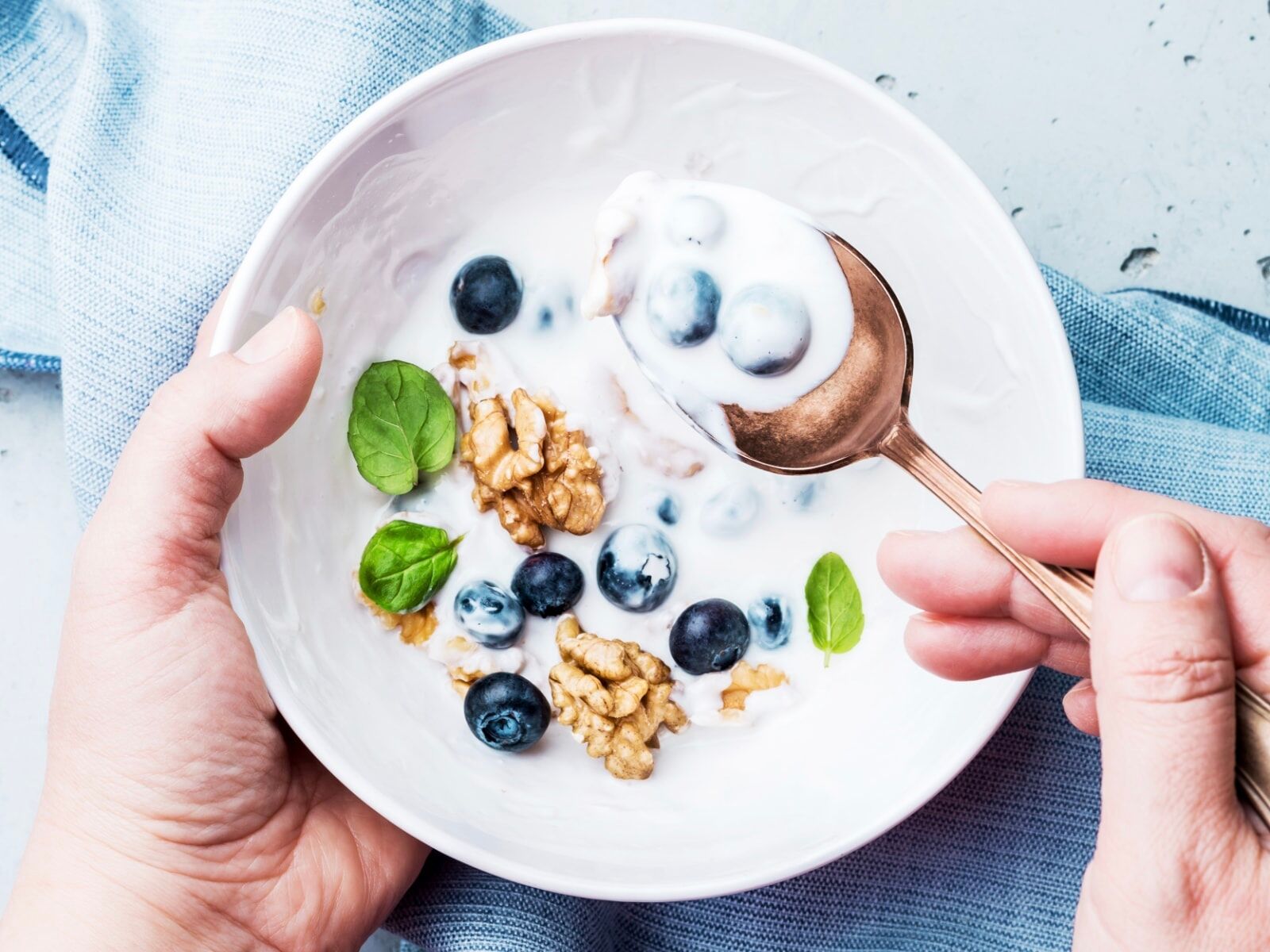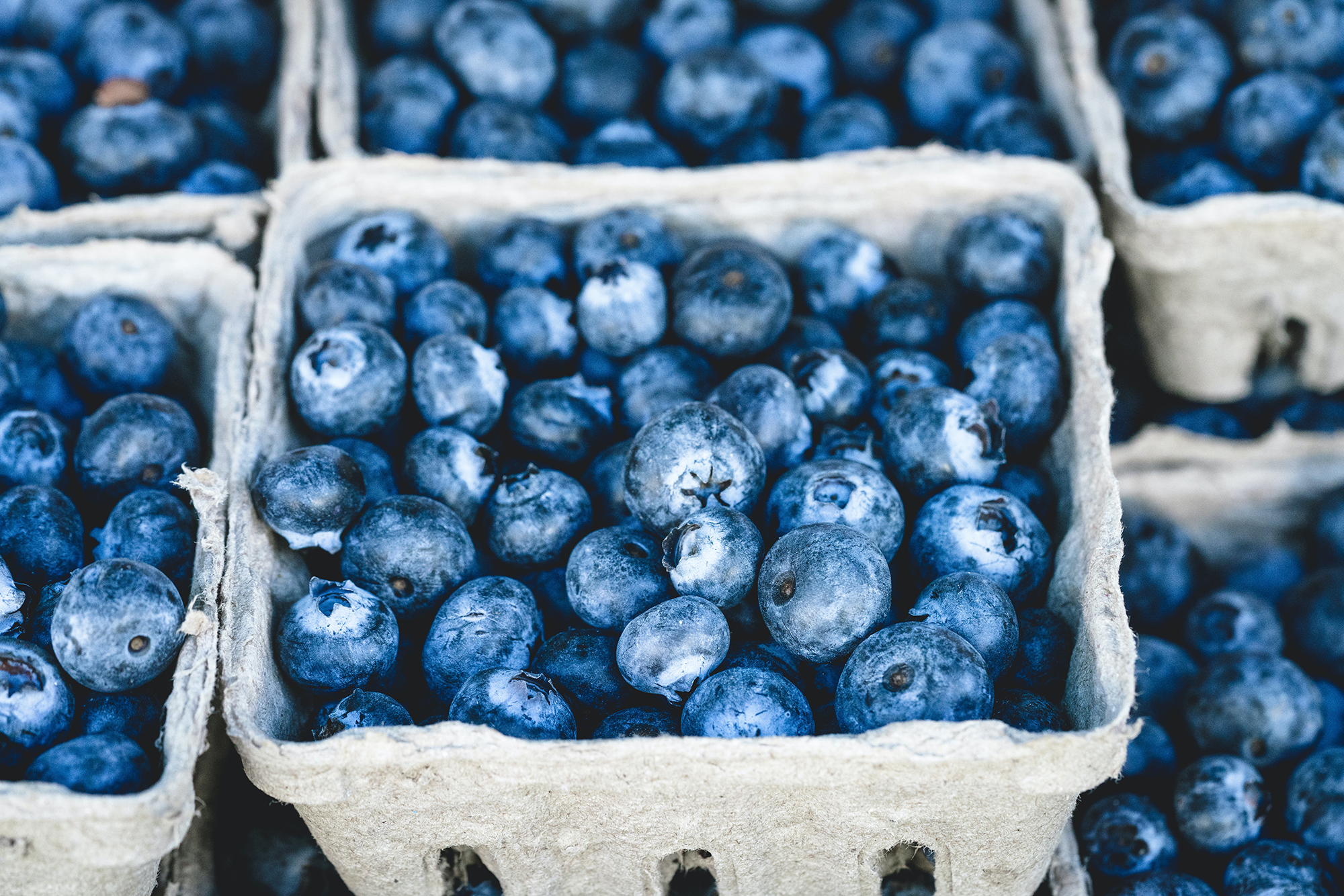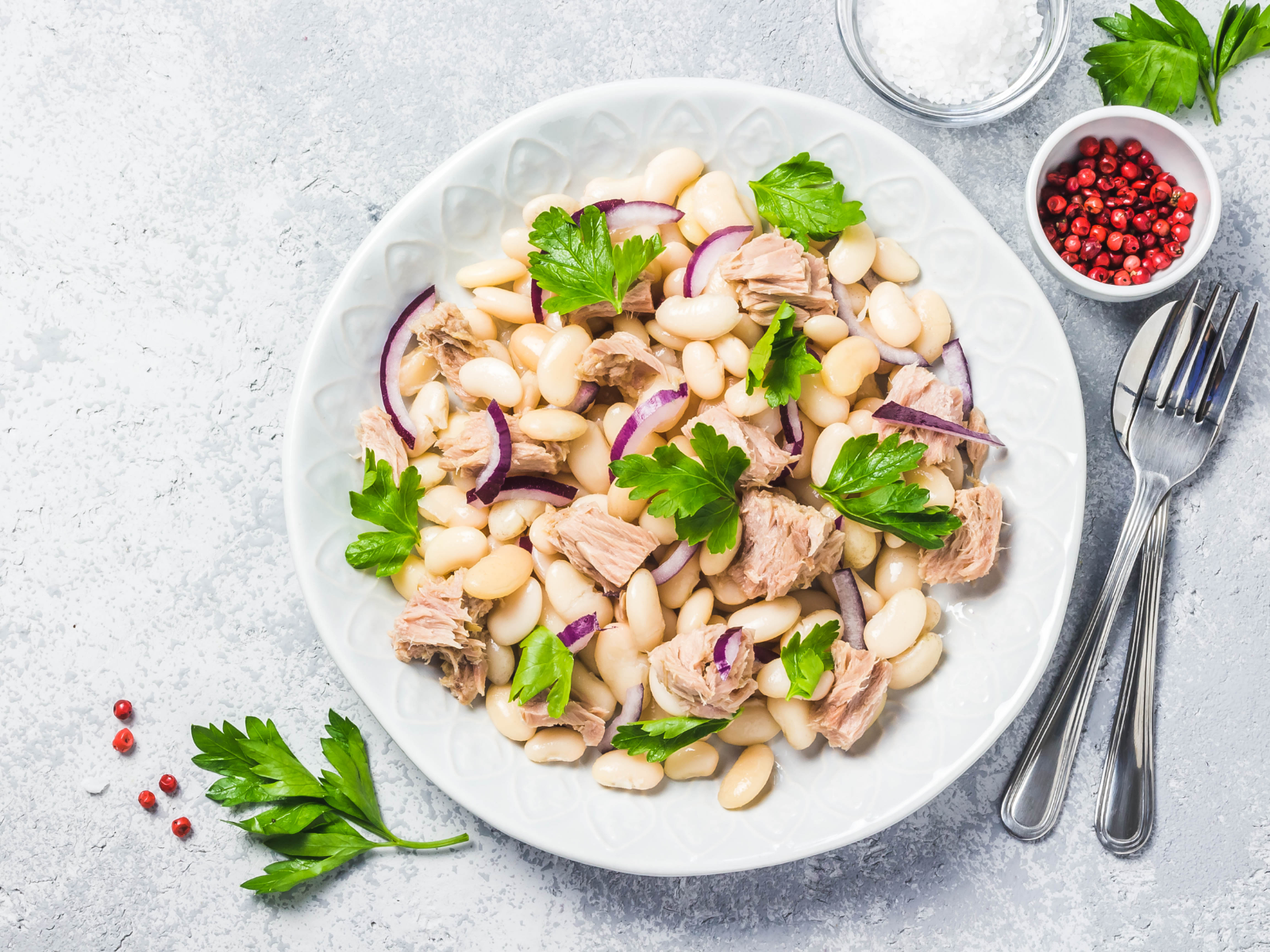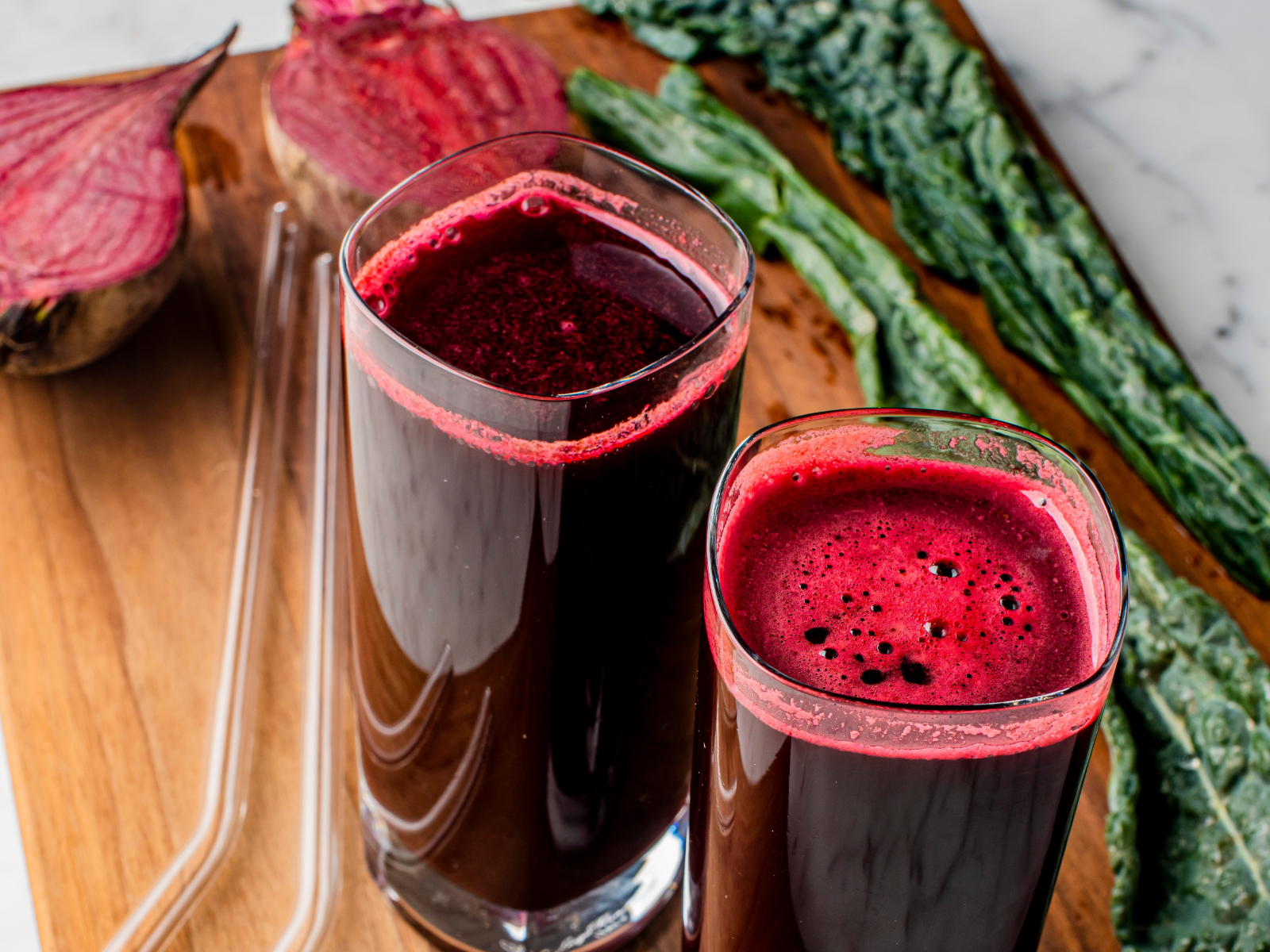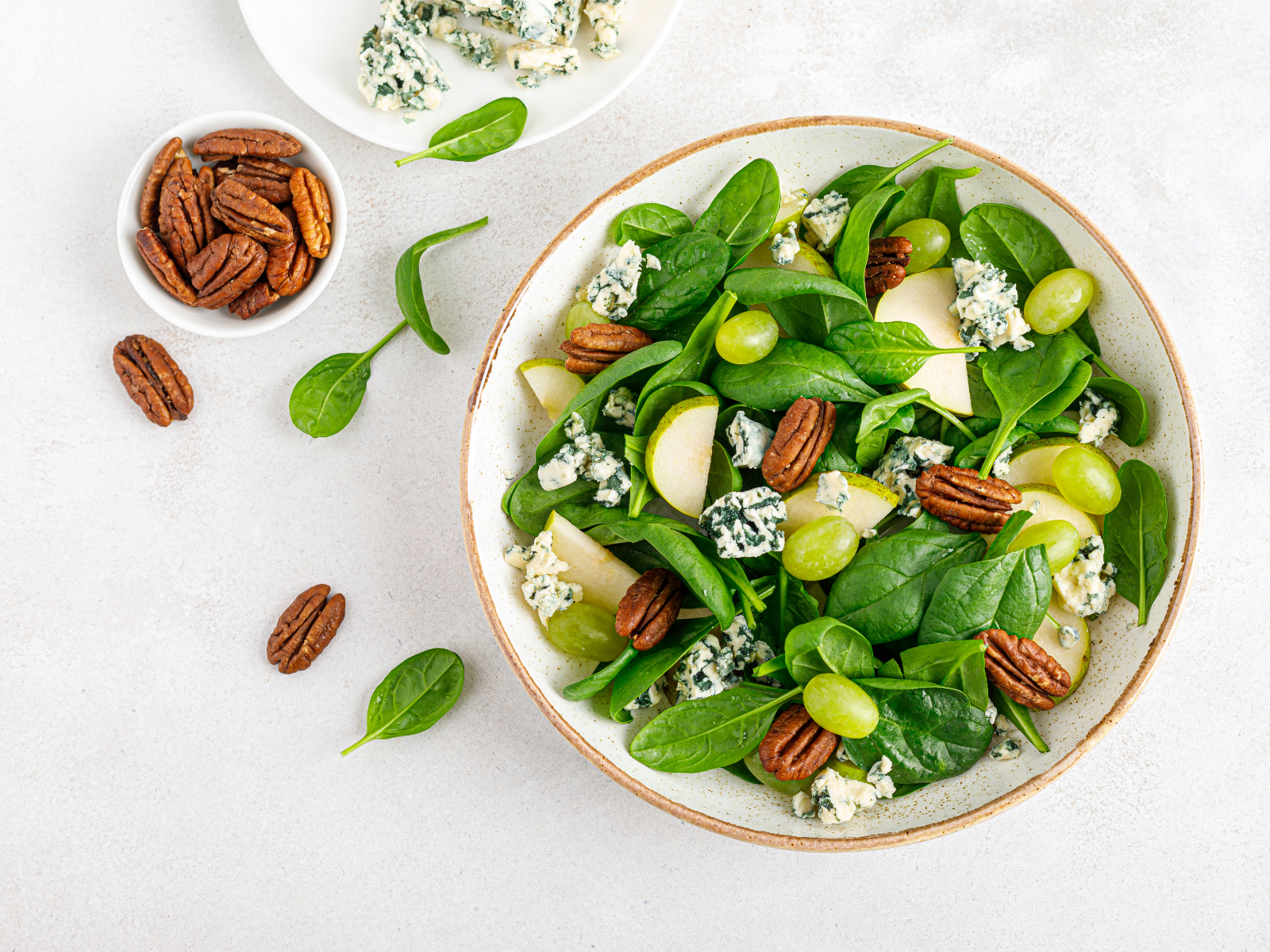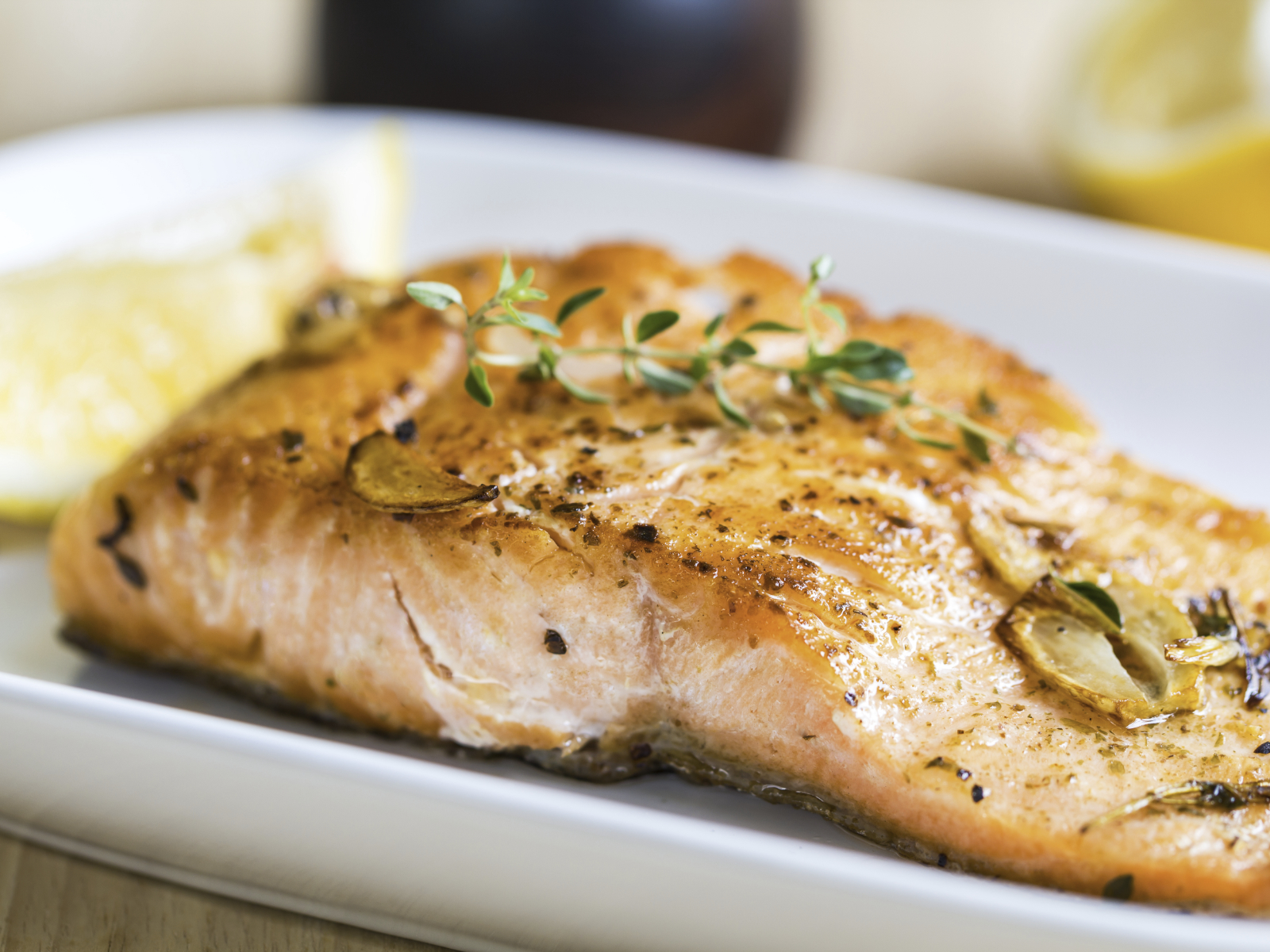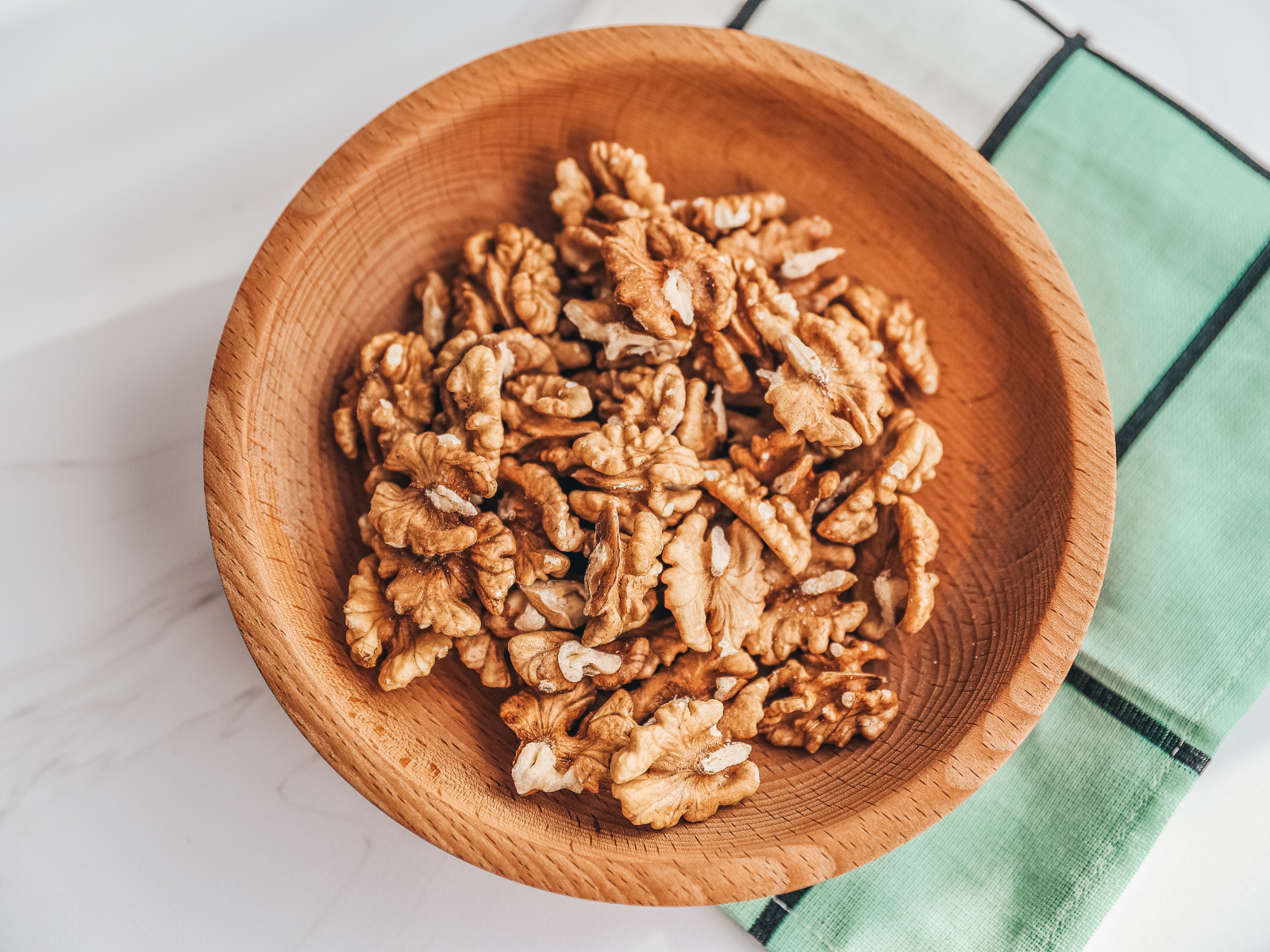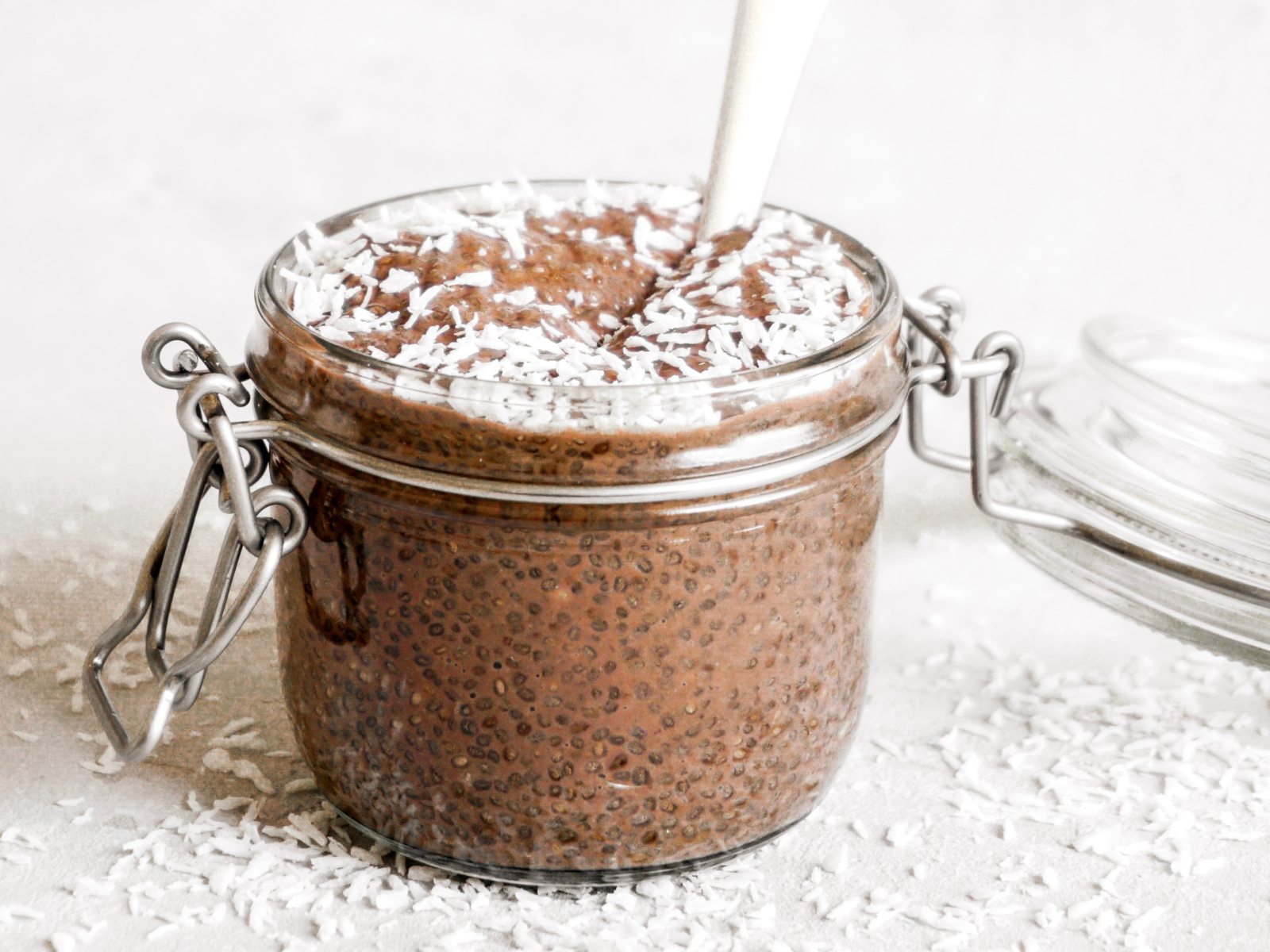var gform;gform||(document.addEventListener("gform_main_scripts_loaded",function(){gform.scriptsLoaded=!0}),window.addEventListener("DOMContentLoaded",function(){gform.domLoaded=!0}),gform={domLoaded:!1,scriptsLoaded:!1,initializeOnLoaded:function(o){gform.domLoaded&&gform.scriptsLoaded?o():!gform.domLoaded&&gform.scriptsLoaded?window.addEventListener("DOMContentLoaded",o):document.addEventListener("gform_main_scripts_loaded",o)},hooks:{action:{},filter:{}},addAction:function(o,n,r,t){gform.addHook("action",o,n,r,t)},addFilter:function(o,n,r,t){gform.addHook("filter",o,n,r,t)},doAction:function(o){gform.doHook("action",o,arguments)},applyFilters:function(o){return gform.doHook("filter",o,arguments)},removeAction:function(o,n){gform.removeHook("action",o,n)},removeFilter:function(o,n,r){gform.removeHook("filter",o,n,r)},addHook:function(o,n,r,t,i){null==gform.hooks[o][n]&&(gform.hooks[o][n]=[]);var e=gform.hooks[o][n];null==i&&(i=n+"_"+e.length),gform.hooks[o][n].push({tag:i,callable:r,priority:t=null==t?10:t})},doHook:function(n,o,r){var t;if(r=Array.prototype.slice.call(r,1),null!=gform.hooks[n][o]&&((o=gform.hooks[n][o]).sort(function(o,n){return o.priority-n.priority}),o.forEach(function(o){"function"!=typeof(t=o.callable)&&(t=window[t]),"action"==n?t.apply(null,r):r[0]=t.apply(null,r)})),"filter"==n)return r[0]},removeHook:function(o,n,t,i){var r;null!=gform.hooks[o][n]&&(r=(r=gform.hooks[o][n]).filter(function(o,n,r){return!!(null!=i&&i!=o.tag||null!=t&&t!=o.priority)}),gform.hooks[o][n]=r)}});
window._wpemojiSettings = {"baseUrl":"https:\/\/s.w.org\/images\/core\/emoji\/15.0.3\/72x72\/","ext":".png","svgUrl":"https:\/\/s.w.org\/images\/core\/emoji\/15.0.3\/svg\/","svgExt":".svg","source":{"concatemoji":"https:\/\/cleanplates.com\/wp-includes\/js\/wp-emoji-release.min.js?ver=6.5.2"}};
/*! This file is auto-generated */
!function(i,n){var o,s,e;function c(e){try{var t={supportTests:e,timestamp:(new Date).valueOf()};sessionStorage.setItem(o,JSON.stringify(t))}catch(e){}}function p(e,t,n){e.clearRect(0,0,e.canvas.width,e.canvas.height),e.fillText(t,0,0);var t=new Uint32Array(e.getImageData(0,0,e.canvas.width,e.canvas.height).data),r=(e.clearRect(0,0,e.canvas.width,e.canvas.height),e.fillText(n,0,0),new Uint32Array(e.getImageData(0,0,e.canvas.width,e.canvas.height).data));return t.every(function(e,t){return e===r[t]})}function u(e,t,n){switch(t){case"flag":return n(e,"\ud83c\udff3\ufe0f\u200d\u26a7\ufe0f","\ud83c\udff3\ufe0f\u200b\u26a7\ufe0f")?!1:!n(e,"\ud83c\uddfa\ud83c\uddf3","\ud83c\uddfa\u200b\ud83c\uddf3")&&!n(e,"\ud83c\udff4\udb40\udc67\udb40\udc62\udb40\udc65\udb40\udc6e\udb40\udc67\udb40\udc7f","\ud83c\udff4\u200b\udb40\udc67\u200b\udb40\udc62\u200b\udb40\udc65\u200b\udb40\udc6e\u200b\udb40\udc67\u200b\udb40\udc7f");case"emoji":return!n(e,"\ud83d\udc26\u200d\u2b1b","\ud83d\udc26\u200b\u2b1b")}return!1}function f(e,t,n){var r="undefined"!=typeof WorkerGlobalScope&&self instanceof WorkerGlobalScope?new OffscreenCanvas(300,150):i.createElement("canvas"),a=r.getContext("2d",{willReadFrequently:!0}),o=(a.textBaseline="top",a.font="600 32px Arial",{});return e.forEach(function(e){o[e]=t(a,e,n)}),o}function t(e){var t=i.createElement("script");t.src=e,t.defer=!0,i.head.appendChild(t)}"undefined"!=typeof Promise&&(o="wpEmojiSettingsSupports",s=["flag","emoji"],n.supports={everything:!0,everythingExceptFlag:!0},e=new Promise(function(e){i.addEventListener("DOMContentLoaded",e,{once:!0})}),new Promise(function(t){var n=function(){try{var e=JSON.parse(sessionStorage.getItem(o));if("object"==typeof e&&"number"==typeof e.timestamp&&(new Date).valueOf()<e.timestamp+604800&&"object"==typeof e.supportTests)return e.supportTests}catch(e){}return null}();if(!n){if("undefined"!=typeof Worker&&"undefined"!=typeof OffscreenCanvas&&"undefined"!=typeof URL&&URL.createObjectURL&&"undefined"!=typeof Blob)try{var e="postMessage("+f.toString()+"("+[JSON.stringify(s),u.toString(),p.toString()].join(",")+"));",r=new Blob([e],{type:"text/javascript"}),a=new Worker(URL.createObjectURL(r),{name:"wpTestEmojiSupports"});return void(a.onmessage=function(e){c(n=e.data),a.terminate(),t(n)})}catch(e){}c(n=f(s,u,p))}t(n)}).then(function(e){for(var t in e)n.supports[t]=e[t],n.supports.everything=n.supports.everything&&n.supports[t],"flag"!==t&&(n.supports.everythingExceptFlag=n.supports.everythingExceptFlag&&n.supports[t]);n.supports.everythingExceptFlag=n.supports.everythingExceptFlag&&!n.supports.flag,n.DOMReady=!1,n.readyCallback=function(){n.DOMReady=!0}}).then(function(){return e}).then(function(){var e;n.supports.everything||(n.readyCallback(),(e=n.source||{}).concatemoji?t(e.concatemoji):e.wpemoji&&e.twemoji&&(t(e.twemoji),t(e.wpemoji)))}))}((window,document),window._wpemojiSettings);
https://cleanplates.com/wp-includes/js/jquery/jquery.min.js
https://cleanplates.com/wp-includes/js/jquery/jquery-migrate.min.js
https://cleanplates.com/wp-includes/js/underscore.min.js
https://cleanplates.com/wp-includes/js/dist/vendor/wp-polyfill-inert.min.js
https://cleanplates.com/wp-includes/js/dist/vendor/regenerator-runtime.min.js
https://cleanplates.com/wp-includes/js/dist/vendor/wp-polyfill.min.js
https://cleanplates.com/wp-includes/js/dist/hooks.min.js
https://cleanplates.com/wp-includes/js/dist/i18n.min.js
wp.i18n.setLocaleData( { 'text direction\u0004ltr': [ 'ltr' ] } );
https://cleanplates.com/wp-content/plugins/memberpress/js/login.js
https://cleanplates.com/wp-content/plugins/memberpress/js/jquery.payment.js
https://cleanplates.com/wp-content/plugins/memberpress/js/validate.js
var MeprI18n = {"states":{"IR":{"KHZ":"Khuzestan (\u062e\u0648\u0632\u0633\u062a\u0627\u0646)","THR":"Tehran (\u062a\u0647\u0631\u0627\u0646)","ILM":"Ilaam (\u0627\u06cc\u0644\u0627\u0645)","BHR":"Bushehr (\u0628\u0648\u0634\u0647\u0631)","ADL":"Ardabil (\u0627\u0631\u062f\u0628\u06cc\u0644)","ESF":"Isfahan (\u0627\u0635\u0641\u0647\u0627\u0646)","YZD":"Yazd (\u06cc\u0632\u062f)","KRH":"Kermanshah (\u06a9\u0631\u0645\u0627\u0646\u0634\u0627\u0647)","KRN":"Kerman (\u06a9\u0631\u0645\u0627\u0646)","HDN":"Hamadan (\u0647\u0645\u062f\u0627\u0646)","GZN":"Ghazvin (\u0642\u0632\u0648\u06cc\u0646)","ZJN":"Zanjan (\u0632\u0646\u062c\u0627\u0646)","LRS":"Luristan (\u0644\u0631\u0633\u062a\u0627\u0646)","ABZ":"Alborz (\u0627\u0644\u0628\u0631\u0632)","EAZ":"East Azarbaijan (\u0622\u0630\u0631\u0628\u0627\u06cc\u062c\u0627\u0646 \u0634\u0631\u0642\u06cc)","WAZ":"West Azarbaijan (\u0622\u0630\u0631\u0628\u0627\u06cc\u062c\u0627\u0646 \u063a\u0631\u0628\u06cc)","CHB":"Chaharmahal and Bakhtiari (\u0686\u0647\u0627\u0631\u0645\u062d\u0627\u0644 \u0648 \u0628\u062e\u062a\u06cc\u0627\u0631\u06cc)","SKH":"South Khorasan (\u062e\u0631\u0627\u0633\u0627\u0646 \u062c\u0646\u0648\u0628\u06cc)","RKH":"Razavi Khorasan (\u062e\u0631\u0627\u0633\u0627\u0646 \u0631\u0636\u0648\u06cc)","NKH":"North Khorasan (\u062e\u0631\u0627\u0633\u0627\u0646 \u062c\u0646\u0648\u0628\u06cc)","SMN":"Semnan (\u0633\u0645\u0646\u0627\u0646)","FRS":"Fars (\u0641\u0627\u0631\u0633)","QHM":"Qom (\u0642\u0645)","KRD":"Kurdistan \/ \u06a9\u0631\u062f\u0633\u062a\u0627\u0646)","KBD":"Kohgiluyeh and BoyerAhmad (\u06a9\u0647\u06af\u06cc\u0644\u0648\u06cc\u06cc\u0647 \u0648 \u0628\u0648\u06cc\u0631\u0627\u062d\u0645\u062f)","GLS":"Golestan (\u06af\u0644\u0633\u062a\u0627\u0646)","GIL":"Gilan (\u06af\u06cc\u0644\u0627\u0646)","MZN":"Mazandaran (\u0645\u0627\u0632\u0646\u062f\u0631\u0627\u0646)","MKZ":"Markazi (\u0645\u0631\u06a9\u0632\u06cc)","HRZ":"Hormozgan (\u0647\u0631\u0645\u0632\u06af\u0627\u0646)","SBN":"Sistan and Baluchestan (\u0633\u06cc\u0633\u062a\u0627\u0646 \u0648 \u0628\u0644\u0648\u0686\u0633\u062a\u0627\u0646)"},"TH":{"TH-37":"Amnat Charoen (อำนาจเจริญ)","TH-15":"Ang Thong (อ่างทอง)","TH-14":"Ayutthaya (พระนครศรีอยุธยา)","TH-10":"Bangkok (กรุงเทพมหานคร)","TH-38":"Bueng Kan (บึงกาฬ)","TH-31":"Buri Ram (บุรีรัมย์)","TH-24":"Chachoengsao (ฉะเชิงเทรา)","TH-18":"Chai Nat (ชัยนาท)","TH-36":"Chaiyaphum (ชัยภูมิ)","TH-22":"Chanthaburi (จันทบุรี)","TH-50":"Chiang Mai (เชียงใหม่)","TH-57":"Chiang Rai (เชียงราย)","TH-20":"Chonburi (ชลบุรี)","TH-86":"Chumphon (ชุมพร)","TH-46":"Kalasin (กาฬสินธุ์)","TH-62":"Kamphaeng Phet (กำแพงเพชร)","TH-71":"Kanchanaburi (กาญจนบุรี)","TH-40":"Khon Kaen (ขอนแก่น)","TH-81":"Krabi (กระบี่)","TH-52":"Lampang (ลำปาง)","TH-51":"Lamphun (ลำพูน)","TH-42":"Loei (เลย)","TH-16":"Lopburi (ลพบุรี)","TH-58":"Mae Hong Son (แม่ฮ่องสอน)","TH-44":"Maha Sarakham (มหาสารคาม)","TH-49":"Mukdahan (มุกดาหาร)","TH-26":"Nakhon Nayok (นครนายก)","TH-73":"Nakhon Pathom (นครปฐม)","TH-48":"Nakhon Phanom (นครพนม)","TH-30":"Nakhon Ratchasima (นครราชสีมา)","TH-60":"Nakhon Sawan (นครสวรรค์)","TH-80":"Nakhon Si Thammarat (นครศรีธรรมราช)","TH-55":"Nan (น่าน)","TH-96":"Narathiwat (นราธิวาส)","TH-39":"Nong Bua Lam Phu (หนองบัวลำภู)","TH-43":"Nong Khai (หนองคาย)","TH-12":"Nonthaburi (นนทบุรี)","TH-13":"Pathum Thani (ปทุมธานี)","TH-94":"Pattani (ปัตตานี)","TH-82":"Phang Nga (พังงา)","TH-93":"Phatthalung (พัทลุง)","TH-56":"Phayao (พะเยา)","TH-67":"Phetchabun (เพชรบูรณ์)","TH-76":"Phetchaburi (เพชรบุรี)","TH-66":"Phichit (พิจิตร)","TH-65":"Phitsanulok (พิษณุโลก)","TH-54":"Phrae (แพร่)","TH-83":"Phuket (ภูเก็ต)","TH-25":"Prachin Buri (ปราจีนบุรี)","TH-77":"Prachuap Khiri Khan (ประจวบคีรีขันธ์)","TH-85":"Ranong (ระนอง)","TH-70":"Ratchaburi (ราชบุรี)","TH-21":"Rayong (ระยอง)","TH-45":"Roi Et (ร้อยเอ็ด)","TH-27":"Sa Kaeo (สระแก้ว)","TH-47":"Sakon Nakhon (สกลนคร)","TH-11":"Samut Prakan (สมุทรปราการ)","TH-74":"Samut Sakhon (สมุทรสาคร)","TH-75":"Samut Songkhram (สมุทรสงคราม)","TH-19":"Saraburi (สระบุรี)","TH-91":"Satun (สตูล)","TH-17":"Sing Buri (สิงห์บุรี)","TH-33":"Sisaket (ศรีสะเกษ)","TH-90":"Songkhla (สงขลา)","TH-64":"Sukhothai (สุโขทัย)","TH-72":"Suphan Buri (สุพรรณบุรี)","TH-84":"Surat Thani (สุราษฎร์ธานี)","TH-32":"Surin (สุรินทร์)","TH-63":"Tak (ตาก)","TH-92":"Trang (ตรัง)","TH-23":"Trat (ตราด)","TH-34":"Ubon Ratchathani (อุบลราชธานี)","TH-41":"Udon Thani (อุดรธานี)","TH-61":"Uthai Thani (อุทัยธานี)","TH-53":"Uttaradit (อุตรดิตถ์)","TH-95":"Yala (ยะลา)","TH-35":"Yasothon (ยโสธร)"},"JP":{"JP01":"Hokkaido","JP02":"Aomori","JP03":"Iwate","JP04":"Miyagi","JP05":"Akita","JP06":"Yamagata","JP07":"Fukushima","JP08":"Ibaraki","JP09":"Tochigi","JP10":"Gunma","JP11":"Saitama","JP12":"Chiba","JP13":"Tokyo","JP14":"Kanagawa","JP15":"Niigata","JP16":"Toyama","JP17":"Ishikawa","JP18":"Fukui","JP19":"Yamanashi","JP20":"Nagano","JP21":"Gifu","JP22":"Shizuoka","JP23":"Aichi","JP24":"Mie","JP25":"Shiga","JP26":"Kyouto","JP27":"Osaka","JP28":"Hyougo","JP29":"Nara","JP30":"Wakayama","JP31":"Tottori","JP32":"Shimane","JP33":"Okayama","JP34":"Hiroshima","JP35":"Yamaguchi","JP36":"Tokushima","JP37":"Kagawa","JP38":"Ehime","JP39":"Kochi","JP40":"Fukuoka","JP41":"Saga","JP42":"Nagasaki","JP43":"Kumamoto","JP44":"Oita","JP45":"Miyazaki","JP46":"Kagoshima","JP47":"Okinawa"},"IT":{"AG":"Agrigento","AL":"Alessandria","AN":"Ancona","AO":"Aosta","AR":"Arezzo","AP":"Ascoli Piceno","AT":"Asti","AV":"Avellino","BA":"Bari","BT":"Barletta-Andria-Trani","BL":"Belluno","BN":"Benevento","BG":"Bergamo","BI":"Biella","BO":"Bologna","BZ":"Bolzano","BS":"Brescia","BR":"Brindisi","CA":"Cagliari","CL":"Caltanissetta","CB":"Campobasso","CI":"Carbonia-Iglesias","CE":"Caserta","CT":"Catania","CZ":"Catanzaro","CH":"Chieti","CO":"Como","CS":"Cosenza","CR":"Cremona","KR":"Crotone","CN":"Cuneo","EN":"Enna","FM":"Fermo","FE":"Ferrara","FI":"Firenze","FG":"Foggia","FC":"Forl\u00ec-Cesena","FR":"Frosinone","GE":"Genova","GO":"Gorizia","GR":"Grosseto","IM":"Imperia","IS":"Isernia","SP":"La Spezia","AQ":"L'Aquila","LT":"Latina","LE":"Lecce","LC":"Lecco","LI":"Livorno","LO":"Lodi","LU":"Lucca","MC":"Macerata","MN":"Mantova","MS":"Massa-Carrara","MT":"Matera","ME":"Messina","MI":"Milano","MO":"Modena","MB":"Monza e della Brianza","NA":"Napoli","NO":"Novara","NU":"Nuoro","OT":"Olbia-Tempio","OR":"Oristano","PD":"Padova","PA":"Palermo","PR":"Parma","PV":"Pavia","PG":"Perugia","PU":"Pesaro e Urbino","PE":"Pescara","PC":"Piacenza","PI":"Pisa","PT":"Pistoia","PN":"Pordenone","PZ":"Potenza","PO":"Prato","RG":"Ragusa","RA":"Ravenna","RC":"Reggio Calabria","RE":"Reggio Emilia","RI":"Rieti","RN":"Rimini","RM":"Roma","RO":"Rovigo","SA":"Salerno","VS":"Medio Campidano","SS":"Sassari","SV":"Savona","SI":"Siena","SR":"Siracusa","SO":"Sondrio","TA":"Taranto","TE":"Teramo","TR":"Terni","TO":"Torino","OG":"Ogliastra","TP":"Trapani","TN":"Trento","TV":"Treviso","TS":"Trieste","UD":"Udine","VA":"Varese","VE":"Venezia","VB":"Verbano-Cusio-Ossola","VC":"Vercelli","VR":"Verona","VV":"Vibo Valentia","VI":"Vicenza","VT":"Viterbo"},"TR":{"TR01":"Adana","TR02":"Adıyaman","TR03":"Afyon","TR04":"Ağrı","TR05":"Amasya","TR06":"Ankara","TR07":"Antalya","TR08":"Artvin","TR09":"Aydın","TR10":"Balıkesir","TR11":"Bilecik","TR12":"Bingöl","TR13":"Bitlis","TR14":"Bolu","TR15":"Burdur","TR16":"Bursa","TR17":"Çanakkale","TR18":"Çankırı","TR19":"Çorum","TR20":"Denizli","TR21":"Diyarbakır","TR22":"Edirne","TR23":"Elazığ","TR24":"Erzincan","TR25":"Erzurum","TR26":"Eskişehir","TR27":"Gaziantep","TR28":"Giresun","TR29":"Gümüşhane","TR30":"Hakkari","TR31":"Hatay","TR32":"Isparta","TR33":"İçel","TR34":"İstanbul","TR35":"İzmir","TR36":"Kars","TR37":"Kastamonu","TR38":"Kayseri","TR39":"Kırklareli","TR40":"Kırşehir","TR41":"Kocaeli","TR42":"Konya","TR43":"Kütahya","TR44":"Malatya","TR45":"Manisa","TR46":"Kahramanmaraş","TR47":"Mardin","TR48":"Muğla","TR49":"Muş","TR50":"Nevşehir","TR51":"Niğde","TR52":"Ordu","TR53":"Rize","TR54":"Sakarya","TR55":"Samsun","TR56":"Siirt","TR57":"Sinop","TR58":"Sivas","TR59":"Tekirdağ","TR60":"Tokat","TR61":"Trabzon","TR62":"Tunceli","TR63":"Şanlıurfa","TR64":"Uşak","TR65":"Van","TR66":"Yozgat","TR67":"Zonguldak","TR68":"Aksaray","TR69":"Bayburt","TR70":"Karaman","TR71":"Kırıkkale","TR72":"Batman","TR73":"Şırnak","TR74":"Bartın","TR75":"Ardahan","TR76":"Iğdır","TR77":"Yalova","TR78":"Karabük","TR79":"Kilis","TR80":"Osmaniye","TR81":"Düzce"},"HK":{"HONG KONG":"Hong Kong Island","KOWLOON":"Kowloon","NEW TERRITORIES":"New Territories"},"PE":{"CAL":"El Callao","LMA":"Municipalidad Metropolitana de Lima","AMA":"Amazonas","ANC":"Ancash","APU":"Apurímac","ARE":"Arequipa","AYA":"Ayacucho","CAJ":"Cajamarca","CUS":"Cusco","HUV":"Huancavelica","HUC":"Huánuco","ICA":"Ica","JUN":"Junín","LAL":"La Libertad","LAM":"Lambayeque","LIM":"Lima","LOR":"Loreto","MDD":"Madre de Dios","MOQ":"Moquegua","PAS":"Pasco","PIU":"Piura","PUN":"Puno","SAM":"San Martín","TAC":"Tacna","TUM":"Tumbes","UCA":"Ucayali"},"US":{"AL":"Alabama","AK":"Alaska","AZ":"Arizona","AR":"Arkansas","CA":"California","CO":"Colorado","CT":"Connecticut","DE":"Delaware","DC":"District Of Columbia","FL":"Florida","GA":"Georgia","HI":"Hawaii","ID":"Idaho","IL":"Illinois","IN":"Indiana","IA":"Iowa","KS":"Kansas","KY":"Kentucky","LA":"Louisiana","ME":"Maine","MD":"Maryland","MA":"Massachusetts","MI":"Michigan","MN":"Minnesota","MS":"Mississippi","MO":"Missouri","MT":"Montana","NE":"Nebraska","NV":"Nevada","NH":"New Hampshire","NJ":"New Jersey","NM":"New Mexico","NY":"New York","NC":"North Carolina","ND":"North Dakota","OH":"Ohio","OK":"Oklahoma","OR":"Oregon","PA":"Pennsylvania","RI":"Rhode Island","SC":"South Carolina","SD":"South Dakota","TN":"Tennessee","TX":"Texas","UT":"Utah","VT":"Vermont","VA":"Virginia","WA":"Washington","WV":"West Virginia","WI":"Wisconsin","WY":"Wyoming","AA":"Armed Forces (AA)","AE":"Armed Forces (AE)","AP":"Armed Forces (AP)","AS":"American Samoa","GU":"Guam","MP":"Northern Mariana Islands","PR":"Puerto Rico","UM":"US Minor Outlying Islands","VI":"US Virgin Islands"},"BR":{"AC":"Acre","AL":"Alagoas","AP":"Amapá","AM":"Amazonas","BA":"Bahia","CE":"Ceará","DF":"Distrito Federal","ES":"Espírito Santo","GO":"Goiás","MA":"Maranhão","MT":"Mato Grosso","MS":"Mato Grosso do Sul","MG":"Minas Gerais","PA":"Pará","PB":"Paraíba","PR":"Paraná","PE":"Pernambuco","PI":"Piauí","RJ":"Rio de Janeiro","RN":"Rio Grande do Norte","RS":"Rio Grande do Sul","RO":"Rondônia","RR":"Roraima","SC":"Santa Catarina","SP":"São Paulo","SE":"Sergipe","TO":"Tocantins"},"BD":{"BAG":"Bagerhat","BAN":"Bandarban","BAR":"Barguna","BARI":"Barisal","BHO":"Bhola","BOG":"Bogra","BRA":"Brahmanbaria","CHA":"Chandpur","CHI":"Chittagong","CHU":"Chuadanga","COM":"Comilla","COX":"Cox's Bazar","DHA":"Dhaka","DIN":"Dinajpur","FAR":"Faridpur ","FEN":"Feni","GAI":"Gaibandha","GAZI":"Gazipur","GOP":"Gopalganj","HAB":"Habiganj","JAM":"Jamalpur","JES":"Jessore","JHA":"Jhalokati","JHE":"Jhenaidah","JOY":"Joypurhat","KHA":"Khagrachhari","KHU":"Khulna","KIS":"Kishoreganj","KUR":"Kurigram","KUS":"Kushtia","LAK":"Lakshmipur","LAL":"Lalmonirhat","MAD":"Madaripur","MAG":"Magura","MAN":"Manikganj ","MEH":"Meherpur","MOU":"Moulvibazar","MUN":"Munshiganj","MYM":"Mymensingh","NAO":"Naogaon","NAR":"Narail","NARG":"Narayanganj","NARD":"Narsingdi","NAT":"Natore","NAW":"Nawabganj","NET":"Netrakona","NIL":"Nilphamari","NOA":"Noakhali","PAB":"Pabna","PAN":"Panchagarh","PAT":"Patuakhali","PIR":"Pirojpur","RAJB":"Rajbari","RAJ":"Rajshahi","RAN":"Rangamati","RANP":"Rangpur","SAT":"Satkhira","SHA":"Shariatpur","SHE":"Sherpur","SIR":"Sirajganj","SUN":"Sunamganj","SYL":"Sylhet","TAN":"Tangail","THA":"Thakurgaon"},"HU":{"BK":"B\u00e1cs-Kiskun","BE":"B\u00e9k\u00e9s","BA":"Baranya","BZ":"Borsod-Aba\u00faj-Zempl\u00e9n","BU":"Budapest","CS":"Csongr\u00e1d","FE":"Fej\u00e9r","GS":"Gy\u0151r-Moson-Sopron","HB":"Hajd\u00fa-Bihar","HE":"Heves","JN":"J\u00e1sz-Nagykun-Szolnok","KE":"Kom\u00e1rom-Esztergom","NO":"N\u00f3gr\u00e1d","PE":"Pest","SO":"Somogy","SZ":"Szabolcs-Szatm\u00e1r-Bereg","TO":"Tolna","VA":"Vas","VE":"Veszpr\u00e9m","ZA":"Zala"},"NZ":{"NL":"Northland","AK":"Auckland","WA":"Waikato","BP":"Bay of Plenty","TK":"Taranaki","HB":"Hawke’s Bay","MW":"Manawatu-Wanganui","WE":"Wellington","NS":"Nelson","MB":"Marlborough","TM":"Tasman","WC":"West Coast","CT":"Canterbury","OT":"Otago","SL":"Southland"},"CA":{"AB":"Alberta","BC":"British Columbia","MB":"Manitoba","NB":"New Brunswick","NL":"Newfoundland","NT":"Northwest Territories","NS":"Nova Scotia","NU":"Nunavut","ON":"Ontario","PE":"Prince Edward Island","QC":"Quebec","SK":"Saskatchewan","YT":"Yukon Territory"},"BG":{"BG-01":"Blagoevgrad","BG-02":"Burgas","BG-08":"Dobrich","BG-07":"Gabrovo","BG-26":"Haskovo","BG-09":"Kardzhali","BG-10":"Kyustendil","BG-11":"Lovech","BG-12":"Montana","BG-13":"Pazardzhik","BG-14":"Pernik","BG-15":"Pleven","BG-16":"Plovdiv","BG-17":"Razgrad","BG-18":"Ruse","BG-27":"Shumen","BG-19":"Silistra","BG-20":"Sliven","BG-21":"Smolyan","BG-23":"Sofia","BG-22":"Sofia-Grad","BG-24":"Stara Zagora","BG-25":"Targovishte","BG-03":"Varna","BG-04":"Veliko Tarnovo","BG-05":"Vidin","BG-06":"Vratsa","BG-28":"Yambol"},"NP":{"ILL":"Illam","JHA":"Jhapa","PAN":"Panchthar","TAP":"Taplejung","BHO":"Bhojpur","DKA":"Dhankuta","MOR":"Morang","SUN":"Sunsari","SAN":"Sankhuwa","TER":"Terhathum","KHO":"Khotang","OKH":"Okhaldhunga","SAP":"Saptari","SIR":"Siraha","SOL":"Solukhumbu","UDA":"Udayapur","DHA":"Dhanusa","DLK":"Dolakha","MOH":"Mohottari","RAM":"Ramechha","SAR":"Sarlahi","SIN":"Sindhuli","BHA":"Bhaktapur","DHD":"Dhading","KTM":"Kathmandu","KAV":"Kavrepalanchowk","LAL":"Lalitpur","NUW":"Nuwakot","RAS":"Rasuwa","SPC":"Sindhupalchowk","BAR":"Bara","CHI":"Chitwan","MAK":"Makwanpur","PAR":"Parsa","RAU":"Rautahat","GOR":"Gorkha","KAS":"Kaski","LAM":"Lamjung","MAN":"Manang","SYN":"Syangja","TAN":"Tanahun","BAG":"Baglung","PBT":"Parbat","MUS":"Mustang","MYG":"Myagdi","AGR":"Agrghakanchi","GUL":"Gulmi","KAP":"Kapilbastu","NAW":"Nawalparasi","PAL":"Palpa","RUP":"Rupandehi","DAN":"Dang","PYU":"Pyuthan","ROL":"Rolpa","RUK":"Rukum","SAL":"Salyan","BAN":"Banke","BDA":"Bardiya","DAI":"Dailekh","JAJ":"Jajarkot","SUR":"Surkhet","DOL":"Dolpa","HUM":"Humla","JUM":"Jumla","KAL":"Kalikot","MUG":"Mugu","ACH":"Achham","BJH":"Bajhang","BJU":"Bajura","DOT":"Doti","KAI":"Kailali","BAI":"Baitadi","DAD":"Dadeldhura","DAR":"Darchula","KAN":"Kanchanpur"},"PT":{"NO":"Norte","CE":"Centro","LT":"Lisboa e Vale do Tejo","AG":"Algarve","AT":"Alentejo","MD":"Madeira","AC":"A\u00e7ores"},"DE":{"BW":"Baden-W\u00fcrttemberg","BY":"Bavaria","BE":"Berlin","BB":"Brandenburg","HB":"Bremen","HH":"Hamburg","HE":"Hesse","NI":"Lower Saxony","MV":"Mecklenburg-Vorpommern","NW":"North Rhine-Westphalia","RP":"Rhineland-Palatinate","SL":"Saarland","SN":"Saxony","ST":"Saxony-Anhalt","SH":"Schleswig-Holstein","TH":"Thuringia"},"CN":{"CN1":"Yunnan \/ 云南","CN2":"Beijing \/ 北京","CN3":"Tianjin \/ 天津","CN4":"Hebei \/ 河北","CN5":"Shanxi \/ 山西","CN6":"Inner Mongolia \/ 內蒙古","CN7":"Liaoning \/ 辽宁","CN8":"Jilin \/ 吉林","CN9":"Heilongjiang \/ 黑龙江","CN10":"Shanghai \/ 上海","CN11":"Jiangsu \/ 江苏","CN12":"Zhejiang \/ 浙江","CN13":"Anhui \/ 安徽","CN14":"Fujian \/ 福建","CN15":"Jiangxi \/ 江西","CN16":"Shandong \/ 山东","CN17":"Henan \/ 河南","CN18":"Hubei \/ 湖北","CN19":"Hunan \/ 湖南","CN20":"Guangdong \/ 广东","CN21":"Guangxi Zhuang \/ 广西壮族","CN22":"Hainan \/ 海南","CN23":"Chongqing \/ 重庆","CN24":"Sichuan \/ 四川","CN25":"Guizhou \/ 贵州","CN26":"Shaanxi \/ 陕西","CN27":"Gansu \/ 甘肃","CN28":"Qinghai \/ 青海","CN29":"Ningxia Hui \/ 宁夏","CN30":"Macau \/ 澳门","CN31":"Tibet \/ 西藏","CN32":"Xinjiang \/ 新疆"},"MY":{"JHR":"Johor","KDH":"Kedah","KTN":"Kelantan","MLK":"Melaka","NSN":"Negeri Sembilan","PHG":"Pahang","PRK":"Perak","PLS":"Perlis","PNG":"Pulau Pinang","SBH":"Sabah","SWK":"Sarawak","SGR":"Selangor","TRG":"Terengganu","KUL":"W.P. Kuala Lumpur","LBN":"W.P. Labuan","PJY":"W.P. Putrajaya"},"ID":{"AC":"Daerah Istimewa Aceh","SU":"Sumatera Utara","SB":"Sumatera Barat","RI":"Riau","KR":"Kepulauan Riau","JA":"Jambi","SS":"Sumatera Selatan","BB":"Bangka Belitung","BE":"Bengkulu","LA":"Lampung","JK":"DKI Jakarta","JB":"Jawa Barat","BT":"Banten","JT":"Jawa Tengah","JI":"Jawa Timur","YO":"Daerah Istimewa Yogyakarta","BA":"Bali","NB":"Nusa Tenggara Barat","NT":"Nusa Tenggara Timur","KB":"Kalimantan Barat","KT":"Kalimantan Tengah","KI":"Kalimantan Timur","KS":"Kalimantan Selatan","KU":"Kalimantan Utara","SA":"Sulawesi Utara","ST":"Sulawesi Tengah","SG":"Sulawesi Tenggara","SR":"Sulawesi Barat","SN":"Sulawesi Selatan","GO":"Gorontalo","MA":"Maluku","MU":"Maluku Utara","PA":"Papua","PB":"Papua Barat"},"ZA":{"EC":"Eastern Cape","FS":"Free State","GP":"Gauteng","KZN":"KwaZulu-Natal","LP":"Limpopo","MP":"Mpumalanga","NC":"Northern Cape","NW":"North West","WC":"Western Cape"},"AU":{"ACT":"Australian Capital Territory","NSW":"New South Wales","NT":"Northern Territory","QLD":"Queensland","SA":"South Australia","TAS":"Tasmania","VIC":"Victoria","WA":"Western Australia"},"MX":{"Distrito Federal":"Distrito Federal","Jalisco":"Jalisco","Nuevo Leon":"Nuevo Le\u00f3n","Aguascalientes":"Aguascalientes","Baja California":"Baja California","Baja California Sur":"Baja California Sur","Campeche":"Campeche","Chiapas":"Chiapas","Chihuahua":"Chihuahua","Coahuila":"Coahuila","Colima":"Colima","Durango":"Durango","Guanajuato":"Guanajuato","Guerrero":"Guerrero","Hidalgo":"Hidalgo","Estado de Mexico":"Edo. de M\u00e9xico","Michoacan":"Michoac\u00e1n","Morelos":"Morelos","Nayarit":"Nayarit","Oaxaca":"Oaxaca","Puebla":"Puebla","Queretaro":"Quer\u00e9taro","Quintana Roo":"Quintana Roo","San Luis Potosi":"San Luis Potos\u00ed","Sinaloa":"Sinaloa","Sonora":"Sonora","Tabasco":"Tabasco","Tamaulipas":"Tamaulipas","Tlaxcala":"Tlaxcala","Veracruz":"Veracruz","Yucatan":"Yucat\u00e1n","Zacatecas":"Zacatecas"},"ES":{"C":"A Coruña","VI":"Araba\/Álava","AB":"Albacete","A":"Alicante","AL":"Almería","O":"Asturias","AV":"Ávila","BA":"Badajoz","PM":"Baleares","B":"Barcelona","BU":"Burgos","CC":"Cáceres","CA":"Cádiz","S":"Cantabria","CS":"Castellón","CE":"Ceuta","CR":"Ciudad Real","CO":"Córdoba","CU":"Cuenca","GI":"Girona","GR":"Granada","GU":"Guadalajara","SS":"Gipuzkoa","H":"Huelva","HU":"Huesca","J":"Jaén","LO":"La Rioja","GC":"Las Palmas","LE":"León","L":"Lleida","LU":"Lugo","M":"Madrid","MA":"Málaga","ML":"Melilla","MU":"Murcia","NA":"Navarra","OR":"Ourense","P":"Palencia","PO":"Pontevedra","SA":"Salamanca","TF":"Santa Cruz de Tenerife","SG":"Segovia","SE":"Sevilla","SO":"Soria","T":"Tarragona","TE":"Teruel","TO":"Toledo","V":"Valencia","VA":"Valladolid","BI":"Bizkaia","ZA":"Zamora","Z":"Zaragoza"},"IN":{"AP":"Andra Pradesh","AR":"Arunachal Pradesh","AS":"Assam","BR":"Bihar","CT":"Chhattisgarh","GA":"Goa","GJ":"Gujarat","HR":"Haryana","HP":"Himachal Pradesh","JK":"Jammu and Kashmir","JH":"Jharkhand","KA":"Karnataka","KL":"Kerala","MP":"Madhya Pradesh","MH":"Maharashtra","MN":"Manipur","ML":"Meghalaya","MZ":"Mizoram","NL":"Nagaland","OR":"Orissa","PB":"Punjab","RJ":"Rajasthan","SK":"Sikkim","TN":"Tamil Nadu","TS":"Telangana","TR":"Tripura","UK":"Uttarakhand","UP":"Uttar Pradesh","WB":"West Bengal","AN":"Andaman and Nicobar Islands","CH":"Chandigarh","DN":"Dadar and Nagar Haveli","DD":"Daman and Diu","DL":"Delhi","LD":"Lakshadeep","PY":"Pondicherry (Puducherry)"}},"ajaxurl":"https:\/\/cleanplates.com\/wp-admin\/admin-ajax.php","please_select_state":"-- Select State --"};
https://cleanplates.com/wp-content/plugins/memberpress/js/i18n.js
https://cleanplates.com/wp-includes/js/jquery/ui/core.min.js
https://cleanplates.com/wp-includes/js/jquery/ui/datepicker.min.js
jQuery(function(jQuery){jQuery.datepicker.setDefaults({"closeText":"Close","currentText":"Today","monthNames":["January","February","March","April","May","June","July","August","September","October","November","December"],"monthNamesShort":["Jan","Feb","Mar","Apr","May","Jun","Jul","Aug","Sep","Oct","Nov","Dec"],"nextText":"Next","prevText":"Previous","dayNames":["Sunday","Monday","Tuesday","Wednesday","Thursday","Friday","Saturday"],"dayNamesShort":["Sun","Mon","Tue","Wed","Thu","Fri","Sat"],"dayNamesMin":["S","M","T","W","T","F","S"],"dateFormat":"MM d, yy","firstDay":1,"isRTL":false});});
https://cleanplates.com/wp-content/plugins/memberpress/js/jquery-ui-timepicker-addon.js
var MeprDatePicker = {"translations":{"closeText":"Done","currentText":"Today","monthNamesShort":["Jan","Feb","Mar","Apr","May","Jun","Jul","Aug","Sep","Oct","Nov","Dec"],"dayNamesMin":["Su","Mo","Tu","We","Th","Fr","Sa"]},"timeFormat":"","dateFormat":"MM d, yy","showTime":""};
https://cleanplates.com/wp-content/plugins/memberpress/js/date_picker.js
var MeprSignup = {"coupon_nonce":"367e23bd9b","spc_enabled":"1","spc_invoice":"1","no_compatible_pms":"There are no payment methods available that can purchase this product, please contact the site administrator or purchase it separately.","switch_pm_prompt":"It looks like your purchase requires %s. No problem! Just click below to switch.","switch_pm":"Switch to %s","cancel":"Cancel","warning_icon_url":"https:\/\/cleanplates.com\/wp-content\/plugins\/memberpress\/images\/mepr-notice-icon-error.png"};
https://cleanplates.com/wp-content/plugins/toolbox/src/uikit/js/uikit-icons.min.js
var PushlySDK = window.PushlySDK || [];
function pushly() { PushlySDK.push(arguments) }
pushly('load', {
domainKey: decodeURIComponent("i84DPRHUIod7WNMyqEXSpROsyv2hU2aZYrur"),
sw: "/wp-content/plugins/pushly/assets/js/pushly-sdk-worker.js.php",
swScope: "/wp-content/plugins/pushly/" });
/** DO NOT MODIFY THIS CODE**/
!function(_window, _document) {
var OB_ADV_ID = '00115c545f4ece0b9fad1739176d766745';
if (_window.obApi) {
var toArray = function(object) {
return Object.prototype.toString.call(object) === '[object Array]' ? object : [object];
};
_window.obApi.marketerId = toArray(_window.obApi.marketerId).concat(toArray(OB_ADV_ID));
return;
}
var api = _window.obApi = function() {
api.dispatch ? api.dispatch.apply(api, arguments) : api.queue.push(arguments);
};
api.version = '1.1';
api.loaded = true;
api.marketerId = OB_ADV_ID;
api.queue = [];
var tag = _document.createElement('script');
tag.async = true;
tag.src = '//amplify.outbrain.com/cp/obtp.js';
tag.type = 'text/javascript';
var script = _document.getElementsByTagName('script')[0];
script.parentNode.insertBefore(tag, script);
}(window, document);obApi('track', 'PAGE_VIEW');(function ($) {
$(document).ready(function() {
var contentContainer = $(".articleBody");
var paragraphs = contentContainer.find("p");if (paragraphs.length >= 2) {
// Create the <ins> element
var chatDiv = $('<ins class="direqt-embed" style="display: block; width: 100%" data-start-hint="faq" data-story-id="auto" data-bot-id="65f06f674337adcf907e29eb"></ins>')
.insertAfter(paragraphs.eq(1));// Create the <script> element using plain JavaScript
var scriptElement = document.createElement('script');
scriptElement.src = 'https://chat.direqt.ai/embed.js';
scriptElement.async = true;// Use plain JavaScript to insert the <script> element directly after the <ins> tag
// Convert chatDiv to a native DOM element to use native DOM methods
chatDiv.get(0).parentNode.insertBefore(scriptElement, chatDiv.get(0).nextSibling);
}
});
})(jQuery);
https://cdn.tpdads.com/configs/cleanplates.js
Skip to content The 7 Best Foods for Your Brain Health, Say Dietitians
Shutterstock
Your brain is, arguably, your most important organ. The gray matter inside your head not only controls all your other organs, it’s the source of your personality, memory, and intellect. Within your body, there’s nothing that doesn’t happen under its watch! Yet, in our pursuit of a healthy diet, we often focus on other goals besides a thriving noggin. But these best foods for brain health are equally as important!
Fortunately, many of the foods you might choose for purposes like heart health or weight loss are also great for your central command organ. Foods high in omega-3 fatty acids, antioxidants, and folate all have a role to play in supporting a brain that stays sharp, even as you age.
Ready to eat your way to a stronger brain? We tapped dietitians for their seven top best foods for brain health to include in your diet.
Related: Sign up to receive delicious recipes, expert advice, and shopping tips in your inbox!
1. Wild blueberries Courtesy of Unsplash
The blueberries you may enjoy in smoothies and pancakes have more to offer than a pop of color and flavor — though they certainly add those, too! The wild kind — which grows uncultivated in the northern U.S. and Canada — is an especially excellent choice for boosting brain health .
Because of their higher skin-to-flesh ratio, wild berries contain more antioxidants than the cultivated variety. Antioxidants may make all the difference for your brain. In younger people, research has found that blueberries’ flavonoids (aka antioxidant compounds) could benefit mood and decrease the risk of depression.
In a small 2017 study in Nutrients study , adolescents who ate wild blueberries had significantly fewer depressive symptoms after both a two- and four-week period.
It’s not just younger people who can get a boost from blueberries. “Eating wild blueberries benefits adults, too, as research shows that regular consumption of them can help improve memory and slow brain aging in older adults,” says Amy Gorin, MS, RDN , a plant-based dietitian and nutrition partner with Wild Blueberries of North America .
Some berry compelling evidence: a study in the European Journal of Nutrition
2. Pulses Shutterstock
What are pulses, you might ask? Beans and legumes like lentils, chickpeas, black beans , and pinto beans all fall under this botanical umbrella term. Though they usually get more press for their high fiber content and plant-based protein, pulses are a surprising friend to your brain.
“Pulses are one of my fave brain foods that aren’t talked about enough,” says Amanda Sauceda, MS, RD . “They’re an excellent source of folate, which is a B vitamin important for brain health.”
In fact, numerous studies have looked at the impact of folate and other B vitamins on cognition and aging. One such study found that when elderly people with mild cognitive impairment supplemented their diets with folate and vitamin B12 for six months, they had significantly improved cognitive performance. They also had reduced markers of inflammation in their blood.
Plus, believe it or not, nourishing your gut with fiber could indirectly nourish your brain. “Pulses are packed with fiber, which supports your gut microbiome and in turn may nourish the gut-brain axis ,” Sauceda says.
3. Beets Shutterstock
The folate (aka vitamin B9) in beans is also abundant in beets, making it another one of the best foods for brain health!
“Beets offer lots of folate to support brain health,” says Gabrielle McPherson, MS, RDN, LDN . “Recent research suggests getting enough folate may help protect against Alzheimer’s.”
According to a large systematic review and meta-analysis , patients with Alzheimer’s disease had lower levels of folate than healthy subjects. Researchers concluded that folate deficiency could increase the risk of developing cognitive impairment.
4. Leafy greens Shutterstock
For your gray matter, you may want to go green. “Leafy greens are great for brains,” says Lisa Andrews, MEd, RD, LD, owner of Sound Bites Nutrition . “A recent study indicated that individuals that consume leafy greens have better cognitive functioning than individuals who consume less.”
Veronica Rouse, RD, known as The Heart Dietitian , concurs, pointing out that specific nutrients in green veggies may be responsible for their advantageous effects on your brain. “Leafy greens such as kale, spinach, collards, and broccoli are rich in brain-healthy nutrients like vitamin K, lutein, folate, and beta-carotene,” she says.
Just one serving of green leaves per day may be all it takes to experience benefits, per a 2018 study . “One serving of spinach or kale can be easily sautéed in olive oil, salt, and pepper or added to soup ,” Rouse suggests.
Or fortify brain wellness by tossing some kale or spinach into a morning smoothie — preferably a wild blueberry one!
Related: 8 Healthy Spinach Recipes That Use Up the Whole Bag
5. Fatty fish Shutterstock
Often touted as “good” fats, omega-3 fatty acids definitely deliver for brain health.
“Omega-3s help with brain development and keep the brain functioning optimally,” says Mary-Catherine LaBossiere, MPH, RD, LDN, owner of Defy Nutrition . “Low levels of DHA, one type of omega-3, have been linked to learning and memory deficits.”
Case in point: a 2022 study linked eating omega-3s with improved brain structure and cognition in midlife.
One of the best sources of edible omega-3s? High-fat seafood. “Fatty fish, such as salmon, sardines, and tuna, are great sources,” LaBossiere points out.
6. Walnuts Shutterstock
Fancy some nuts for your noggin? Make ’em walnuts . Adding walnuts to your trail mix or workday salad could pay off for brain health. Like fatty fish, walnuts are loaded with omega-3 fatty acids, specifically the alpha-linoleic (ALA) variety. These fats have potent anti-inflammatory effects. And because experts believe that inflammation is a major driver of Alzheimer’s disease, getting plenty of ALA in nutty vehicles could decrease the likelihood of cognitive decline .
One study (funded in part by the California Walnut Commission) put the walnuts-for-the-brain theory to the test, supplementing the diets of over 600 elderly people with the nuts for two years. While those who ate walnuts had no changes in cognition tests, fMRI scans revealed that added walnuts could delay cognitive decline in certain high-risk groups.
7. Chia seeds Shutterstock
“If you’re looking to boost your family’s brain health, it’s as simple as adding chia seeds to your meals,” says Dani Lebovitz, MS, RDN, CSSD, CDCES, founder of Kid Food Explorers . “Chia seeds are a triple threat to cognitive brain decline because they are packed with antioxidants, fiber, and omega-3 fatty acids—three important nutrients for brain health.” Specifically, the antioxidants quercetin, chlorogenic acid, and caffeic acid in chia seeds may have neuroprotective effects, Lebovitz says.
Meanwhile, as with pulses, the fiber in the little round seeds supports a healthy gut, which may benefit your brain via the gut-brain axis. Just 1 tablespoon provides 5 grams — 20% of your recommended daily fiber intake!
Chia seeds’ mild taste and small size mean they’re an easy upgrade for all sorts of meals and snacks. “Try adding chia seeds as ‘sprinkles’ on yogurt and oatmeal, mixed with water for an easy egg replacement in baked dishes, or on its own in coconut chia pudding,” Levovitz suggests.
Read next: 8 Recipes That Contain Superfoods for Brain Health
What our editors love right now
Be the first to know.
Sign Up Today
https://cleanplates.com/wp-content/plugins/memberpress/js/signup.js
// Create a new script element
var script = document.createElement('script');
const version = new Date().valueOf()
// Set the source attribute with the dynamic version
script.src = 'https://instaread.co/js/instaread_playerslug.min.js?version=' + version;
// Append the script to the document
document.head.appendChild(script);
// Define a function to be executed after the script is loaded
script.onload = function () {
const titleSlug = instareadPlayerTitleSlug(
document.querySelector("title").innerHTML
);
const article_url = instareadPlayerTitleSlug(document.location.href);
const instareadPlayerIframe = document.getElementById("instaread_iframe");
const publication = "cleanplates"
instareadPlayerIframe.setAttribute(
"src", `https://instaread.co/player?article=${titleSlug}&publication=${publication}&article_encoder=slugjs&article_key=titletag&version=${version}&article_url=${article_url}`
);
}
(function(w, d, s, id) {
w.PUBX=w.PUBX || {pub: "clean_plates", discover: false, lazy: true};
var js, pjs = d.getElementsByTagName(s)[0];
if (d.getElementById(id)) return;
js = d.createElement(s); js.id = id; js.async = true;
js.src = "https://main.pubexchange.com/loader.min.js";
pjs.parentNode.insertBefore(js, pjs);
}(window, document, "script", "pubexchange-jssdk"));
gform.initializeOnLoaded( function() {gformInitSpinner( 1744378067, 'https://cleanplates.com/wp-content/plugins/gravityforms/images/spinner.svg', true );jQuery('#gform_ajax_frame_1744378067').on('load',function(){var contents = jQuery(this).contents().find('*').html();var is_postback = contents.indexOf('GF_AJAX_POSTBACK') >= 0;if(!is_postback){return;}var form_content = jQuery(this).contents().find('#gform_wrapper_1744378067');var is_confirmation = jQuery(this).contents().find('#gform_confirmation_wrapper_1744378067').length > 0;var is_redirect = contents.indexOf('gformRedirect(){') >= 0;var is_form = form_content.length > 0 && ! is_redirect && ! is_confirmation;var mt = parseInt(jQuery('html').css('margin-top'), 10) + parseInt(jQuery('body').css('margin-top'), 10) + 100;if(is_form){jQuery('#gform_wrapper_1744378067').html(form_content.html());if(form_content.hasClass('gform_validation_error')){jQuery('#gform_wrapper_1744378067').addClass('gform_validation_error');} else {jQuery('#gform_wrapper_1744378067').removeClass('gform_validation_error');}setTimeout( function() { /* delay the scroll by 50 milliseconds to fix a bug in chrome */ jQuery(document).scrollTop(jQuery('#gform_wrapper_1744378067').offset().top - mt); }, 50 );if(window['gformInitDatepicker']) {gformInitDatepicker();}if(window['gformInitPriceFields']) {gformInitPriceFields();}var current_page = jQuery('#gform_source_page_number_8').val();gformInitSpinner( 1744378067, 'https://cleanplates.com/wp-content/plugins/gravityforms/images/spinner.svg', true );jQuery(document).trigger('gform_page_loaded', [1744378067, current_page]);window['gf_submitting_1744378067'] = false;}else if(!is_redirect){var confirmation_content = jQuery(this).contents().find('.GF_AJAX_POSTBACK').html();if(!confirmation_content){confirmation_content = contents;}setTimeout(function(){jQuery('#gform_wrapper_1744378067').replaceWith(confirmation_content);jQuery(document).scrollTop(jQuery('#gf_1744378067').offset().top - mt);jQuery(document).trigger('gform_confirmation_loaded', [1744378067]);window['gf_submitting_1744378067'] = false;wp.a11y.speak(jQuery('#gform_confirmation_message_1744378067').text());}, 50);}else{jQuery('#gform_1744378067').append(contents);if(window['gformRedirect']) {gformRedirect();}}jQuery(document).trigger("gform_pre_post_render", [{ formId: "8", currentPage: "current_page", abort: function() { this.preventDefault(); } }]); if (event.defaultPrevented) { return; } const gformWrapperDiv = document.getElementById( "gform_wrapper_8" ); if ( gformWrapperDiv ) { const visibilitySpan = document.createElement( "span" ); visibilitySpan.id = "gform_visibility_test_8"; gformWrapperDiv.insertAdjacentElement( "afterend", visibilitySpan ); } const visibilityTestDiv = document.getElementById( "gform_visibility_test_8" ); let postRenderFired = false; function triggerPostRender() { if ( postRenderFired ) { return; } postRenderFired = true; jQuery( document ).trigger( 'gform_post_render', [8, current_page] ); gform.utils.trigger( { event: 'gform/postRender', native: false, data: { formId: 8, currentPage: current_page } } ); if ( visibilityTestDiv ) { visibilityTestDiv.parentNode.removeChild( visibilityTestDiv ); } } function debounce( func, wait, immediate ) { var timeout; return function() { var context = this, args = arguments; var later = function() { timeout = null; if ( !immediate ) func.apply( context, args ); }; var callNow = immediate && !timeout; clearTimeout( timeout ); timeout = setTimeout( later, wait ); if ( callNow ) func.apply( context, args ); }; } const debouncedTriggerPostRender = debounce( function() { triggerPostRender(); }, 200 ); if ( visibilityTestDiv && visibilityTestDiv.offsetParent === null ) { const observer = new MutationObserver( ( mutations ) => { mutations.forEach( ( mutation ) => { if ( mutation.type === 'attributes' && visibilityTestDiv.offsetParent !== null ) { debouncedTriggerPostRender(); observer.disconnect(); } }); }); observer.observe( document.body, { attributes: true, childList: false, subtree: true, attributeFilter: [ 'style', 'class' ], }); } else { triggerPostRender(); } } );} );
gform.initializeOnLoaded( function() {gformInitSpinner( 1088318053, 'https://cleanplates.com/wp-content/plugins/gravityforms/images/spinner.svg', true );jQuery('#gform_ajax_frame_1088318053').on('load',function(){var contents = jQuery(this).contents().find('*').html();var is_postback = contents.indexOf('GF_AJAX_POSTBACK') >= 0;if(!is_postback){return;}var form_content = jQuery(this).contents().find('#gform_wrapper_1088318053');var is_confirmation = jQuery(this).contents().find('#gform_confirmation_wrapper_1088318053').length > 0;var is_redirect = contents.indexOf('gformRedirect(){') >= 0;var is_form = form_content.length > 0 && ! is_redirect && ! is_confirmation;var mt = parseInt(jQuery('html').css('margin-top'), 10) + parseInt(jQuery('body').css('margin-top'), 10) + 100;if(is_form){jQuery('#gform_wrapper_1088318053').html(form_content.html());if(form_content.hasClass('gform_validation_error')){jQuery('#gform_wrapper_1088318053').addClass('gform_validation_error');} else {jQuery('#gform_wrapper_1088318053').removeClass('gform_validation_error');}setTimeout( function() { /* delay the scroll by 50 milliseconds to fix a bug in chrome */ jQuery(document).scrollTop(jQuery('#gform_wrapper_1088318053').offset().top - mt); }, 50 );if(window['gformInitDatepicker']) {gformInitDatepicker();}if(window['gformInitPriceFields']) {gformInitPriceFields();}var current_page = jQuery('#gform_source_page_number_8').val();gformInitSpinner( 1088318053, 'https://cleanplates.com/wp-content/plugins/gravityforms/images/spinner.svg', true );jQuery(document).trigger('gform_page_loaded', [1088318053, current_page]);window['gf_submitting_1088318053'] = false;}else if(!is_redirect){var confirmation_content = jQuery(this).contents().find('.GF_AJAX_POSTBACK').html();if(!confirmation_content){confirmation_content = contents;}setTimeout(function(){jQuery('#gform_wrapper_1088318053').replaceWith(confirmation_content);jQuery(document).scrollTop(jQuery('#gf_1088318053').offset().top - mt);jQuery(document).trigger('gform_confirmation_loaded', [1088318053]);window['gf_submitting_1088318053'] = false;wp.a11y.speak(jQuery('#gform_confirmation_message_1088318053').text());}, 50);}else{jQuery('#gform_1088318053').append(contents);if(window['gformRedirect']) {gformRedirect();}}jQuery(document).trigger("gform_pre_post_render", [{ formId: "8", currentPage: "current_page", abort: function() { this.preventDefault(); } }]); if (event.defaultPrevented) { return; } const gformWrapperDiv = document.getElementById( "gform_wrapper_8" ); if ( gformWrapperDiv ) { const visibilitySpan = document.createElement( "span" ); visibilitySpan.id = "gform_visibility_test_8"; gformWrapperDiv.insertAdjacentElement( "afterend", visibilitySpan ); } const visibilityTestDiv = document.getElementById( "gform_visibility_test_8" ); let postRenderFired = false; function triggerPostRender() { if ( postRenderFired ) { return; } postRenderFired = true; jQuery( document ).trigger( 'gform_post_render', [8, current_page] ); gform.utils.trigger( { event: 'gform/postRender', native: false, data: { formId: 8, currentPage: current_page } } ); if ( visibilityTestDiv ) { visibilityTestDiv.parentNode.removeChild( visibilityTestDiv ); } } function debounce( func, wait, immediate ) { var timeout; return function() { var context = this, args = arguments; var later = function() { timeout = null; if ( !immediate ) func.apply( context, args ); }; var callNow = immediate && !timeout; clearTimeout( timeout ); timeout = setTimeout( later, wait ); if ( callNow ) func.apply( context, args ); }; } const debouncedTriggerPostRender = debounce( function() { triggerPostRender(); }, 200 ); if ( visibilityTestDiv && visibilityTestDiv.offsetParent === null ) { const observer = new MutationObserver( ( mutations ) => { mutations.forEach( ( mutation ) => { if ( mutation.type === 'attributes' && visibilityTestDiv.offsetParent !== null ) { debouncedTriggerPostRender(); observer.disconnect(); } }); }); observer.observe( document.body, { attributes: true, childList: false, subtree: true, attributeFilter: [ 'style', 'class' ], }); } else { triggerPostRender(); } } );} );
(function(d,u,ac){var s=d.createElement('script');s.type='text/javascript';s.src='https://a.omappapi.com/app/js/api.min.js';s.async=true;s.dataset.user=u;s.dataset.campaign=ac;d.getElementsByTagName('head')[0].appendChild(s);})(document,163062,'ar3bevprumlagpkwgohv');
(function(d,u,ac){var s=d.createElement('script');s.type='text/javascript';s.src='https://a.omappapi.com/app/js/api.min.js';s.async=true;s.dataset.user=u;s.dataset.campaign=ac;d.getElementsByTagName('head')[0].appendChild(s);})(document,163062,'bch9zgxf3xlbqcbrurtg');
var ar3bevprumlagpkwgohv_shortcode = true;var bch9zgxf3xlbqcbrurtg_shortcode = true;
https://cleanplates.com/wp-content/plugins/bb-plugin/js/jquery.imagesloaded.min.js
https://cleanplates.com/wp-content/plugins/bb-plugin/js/jquery.ba-throttle-debounce.min.js
window.wpParselySiteId = 'cleanplates.com';
https://cleanplates.com/wp-content/plugins/wp-parsely/build/loader.js
https://cleanplates.com/wp-content/themes/bb-theme-child/js/footer.min.js
https://cleanplates.com/wp-content/plugins/page-links-to/dist/new-tab.js
(function(d){var s=d.createElement("script");s.type="text/javascript";s.src="https://a.omappapi.com/app/js/api.min.js";s.async=true;s.id="omapi-script";d.getElementsByTagName("head")[0].appendChild(s);})(document);
https://cleanplates.com/wp-content/plugins/bb-plugin/js/jquery.magnificpopup.min.js
https://cleanplates.com/wp-content/plugins/bb-plugin/js/jquery.fitvids.min.js
var themeopts = {"medium_breakpoint":"990","mobile_breakpoint":"641","scrollTopPosition":"800"};
https://cleanplates.com/wp-content/themes/bb-theme/js/theme.min.js
https://cleanplates.com/wp-includes/js/dist/vendor/react.min.js
https://cleanplates.com/wp-includes/js/dist/vendor/react-dom.min.js
https://cleanplates.com/wp-includes/js/dist/escape-html.min.js
https://cleanplates.com/wp-includes/js/dist/element.min.js
https://cleanplates.com/wp-content/plugins/clean-plates-timber/js/clean-plates.js
https://cleanplates.com/wp-includes/js/dist/dom-ready.min.js
https://cleanplates.com/wp-includes/js/dist/a11y.min.js
https://cleanplates.com/wp-content/plugins/gravityforms/js/jquery.json.min.js
var gform_i18n = {"datepicker":{"days":{"monday":"Mo","tuesday":"Tu","wednesday":"We","thursday":"Th","friday":"Fr","saturday":"Sa","sunday":"Su"},"months":{"january":"January","february":"February","march":"March","april":"April","may":"May","june":"June","july":"July","august":"August","september":"September","october":"October","november":"November","december":"December"},"firstDay":1,"iconText":"Select date"}};
var gf_legacy_multi = [];
var gform_gravityforms = {"strings":{"invalid_file_extension":"This type of file is not allowed. Must be one of the following:","delete_file":"Delete this file","in_progress":"in progress","file_exceeds_limit":"File exceeds size limit","illegal_extension":"This type of file is not allowed.","max_reached":"Maximum number of files reached","unknown_error":"There was a problem while saving the file on the server","currently_uploading":"Please wait for the uploading to complete","cancel":"Cancel","cancel_upload":"Cancel this upload","cancelled":"Cancelled"},"vars":{"images_url":"https:\/\/cleanplates.com\/wp-content\/plugins\/gravityforms\/images"}};
var gf_global = {"gf_currency_config":{"name":"U.S. Dollar","symbol_left":"$","symbol_right":"","symbol_padding":"","thousand_separator":",","decimal_separator":".","decimals":2,"code":"USD"},"base_url":"https:\/\/cleanplates.com\/wp-content\/plugins\/gravityforms","number_formats":[],"spinnerUrl":"https:\/\/cleanplates.com\/wp-content\/plugins\/gravityforms\/images\/spinner.svg","version_hash":"cd1c92821f8683535b0c1f366b1d8b12","strings":{"newRowAdded":"New row added.","rowRemoved":"Row removed","formSaved":"The form has been saved. The content contains the link to return and complete the form."}};
var gf_global = {"gf_currency_config":{"name":"U.S. Dollar","symbol_left":"$","symbol_right":"","symbol_padding":"","thousand_separator":",","decimal_separator":".","decimals":2,"code":"USD"},"base_url":"https:\/\/cleanplates.com\/wp-content\/plugins\/gravityforms","number_formats":[],"spinnerUrl":"https:\/\/cleanplates.com\/wp-content\/plugins\/gravityforms\/images\/spinner.svg","version_hash":"cd1c92821f8683535b0c1f366b1d8b12","strings":{"newRowAdded":"New row added.","rowRemoved":"Row removed","formSaved":"The form has been saved. The content contains the link to return and complete the form."}};
https://cleanplates.com/wp-content/plugins/gravityforms/js/gravityforms.min.js
https://cleanplates.com/wp-content/plugins/gravityforms/js/placeholders.jquery.min.js
https://cleanplates.com/wp-content/plugins/gravityforms/assets/js/dist/utils.min.js
https://cleanplates.com/wp-content/plugins/gravityforms/assets/js/dist/vendor-theme.min.js
var gform_theme_config = {"common":{"form":{"honeypot":{"version_hash":"cd1c92821f8683535b0c1f366b1d8b12"}}},"hmr_dev":"","public_path":"https:\/\/cleanplates.com\/wp-content\/plugins\/gravityforms\/assets\/js\/dist\/"};
https://cleanplates.com/wp-content/plugins/gravityforms/assets/js/dist/scripts-theme.min.js
https://cleanplates.com/wp-content/plugins/optinmonster/assets/dist/js/helper.min.js
jQuery('.soliloquy-container').removeClass('no-js');
gform.initializeOnLoaded( function() { jQuery(document).on('gform_post_render', function(event, formId, currentPage){if(formId == 8) {if(typeof Placeholders != 'undefined'){
Placeholders.enable();
}jQuery( "#gform_8" ).on( 'submit', function( event ) {
jQuery( '<input>' )
.attr( 'type', 'hidden' )
.attr( 'name', 'gf_zero_spam_key' )
.attr( 'value', 'IX0ESiTziYfmVNNQOMy3z9RHjgGf0VgF9I0IpzL8Qa87yM0lRradVjPFvaF8FS1T' )
.attr( 'autocomplete', 'new-password' )
.appendTo( jQuery( this ) );
} );} } );jQuery(document).on('gform_post_conditional_logic', function(event, formId, fields, isInit){} ) } );
gform.initializeOnLoaded( function() {jQuery(document).trigger("gform_pre_post_render", [{ formId: "8", currentPage: "1", abort: function() { this.preventDefault(); } }]); if (event.defaultPrevented) { return; } const gformWrapperDiv = document.getElementById( "gform_wrapper_8" ); if ( gformWrapperDiv ) { const visibilitySpan = document.createElement( "span" ); visibilitySpan.id = "gform_visibility_test_8"; gformWrapperDiv.insertAdjacentElement( "afterend", visibilitySpan ); } const visibilityTestDiv = document.getElementById( "gform_visibility_test_8" ); let postRenderFired = false; function triggerPostRender() { if ( postRenderFired ) { return; } postRenderFired = true; jQuery( document ).trigger( 'gform_post_render', [8, 1] ); gform.utils.trigger( { event: 'gform/postRender', native: false, data: { formId: 8, currentPage: 1 } } ); if ( visibilityTestDiv ) { visibilityTestDiv.parentNode.removeChild( visibilityTestDiv ); } } function debounce( func, wait, immediate ) { var timeout; return function() { var context = this, args = arguments; var later = function() { timeout = null; if ( !immediate ) func.apply( context, args ); }; var callNow = immediate && !timeout; clearTimeout( timeout ); timeout = setTimeout( later, wait ); if ( callNow ) func.apply( context, args ); }; } const debouncedTriggerPostRender = debounce( function() { triggerPostRender(); }, 200 ); if ( visibilityTestDiv && visibilityTestDiv.offsetParent === null ) { const observer = new MutationObserver( ( mutations ) => { mutations.forEach( ( mutation ) => { if ( mutation.type === 'attributes' && visibilityTestDiv.offsetParent !== null ) { debouncedTriggerPostRender(); observer.disconnect(); } }); }); observer.observe( document.body, { attributes: true, childList: false, subtree: true, attributeFilter: [ 'style', 'class' ], }); } else { triggerPostRender(); } } );
var omapi_localized = {
ajax: 'https://cleanplates.com/wp-admin/admin-ajax.php?optin-monster-ajax-route=1',
nonce: 'd89c5ae6ee',
slugs:
{"ar3bevprumlagpkwgohv":{"slug":"ar3bevprumlagpkwgohv","mailpoet":false},"bch9zgxf3xlbqcbrurtg":{"slug":"bch9zgxf3xlbqcbrurtg","mailpoet":false}} };
var omapi_data = {"object_id":34799,"object_key":"post","object_type":"post","term_ids":[4163,3178,3450,4068,4087],"wp_json":"https:\/\/cleanplates.com\/wp-json","wc_active":false,"edd_active":false,"nonce":"bda0813b4c"};
var wpAjaxUrl='https://cleanplates.com/wp-admin/admin-ajax.php';var flBuilderUrl='https://cleanplates.com/wp-content/plugins/bb-plugin/';var FLBuilderLayoutConfig={anchorLinkAnimations:{duration:1000,easing:'swing',offset:100},paths:{pluginUrl:'https://cleanplates.com/wp-content/plugins/bb-plugin/',wpAjaxUrl:'https://cleanplates.com/wp-admin/admin-ajax.php'},breakpoints:{small:641,medium:961,large:1200},waypoint:{offset:80}};(function($){if(typeof FLBuilderLayout!='undefined'){return;}
FLBuilderLayout={init:function(){FLBuilderLayout._destroy();FLBuilderLayout._initClasses();FLBuilderLayout._initBackgrounds();FLBuilderLayout._initRowShapeLayerHeight();if(0===$('.fl-builder-edit').length){FLBuilderLayout._initModuleAnimations();FLBuilderLayout._initAnchorLinks();FLBuilderLayout._initHash();FLBuilderLayout._initForms();FLBuilderLayout._reorderMenu();}},refreshGalleries:function(element){var $element='undefined'==typeof element?$('body'):$(element),mfContent=$element.find('.fl-mosaicflow-content'),wmContent=$element.find('.fl-gallery'),mfObject=null;if(mfContent){mfObject=mfContent.data('mosaicflow');if(mfObject){mfObject.columns=$([]);mfObject.columnsHeights=[];mfContent.data('mosaicflow',mfObject);mfContent.mosaicflow('refill');}}
if(wmContent){wmContent.trigger('refreshWookmark');}},refreshGridLayout:function(element){var $element='undefined'==typeof element?$('body'):$(element),msnryContent=$element.find('.masonry');if(msnryContent.length){msnryContent.masonry('layout');}},reloadSlider:function(content){var $content='undefined'==typeof content?$('body'):$(content);if($content.find('.bx-viewport > div').length>0){$.each($content.find('.bx-viewport > div'),function(key,slider){setTimeout(function(){$(slider).data('bxSlider').reloadSlider();},100);});}},resizeAudio:function(element){var $element='undefined'==typeof element?$('body'):$(element),audioPlayers=$element.find('.wp-audio-shortcode.mejs-audio'),player=null,mejsPlayer=null,rail=null,railWidth=400;if(audioPlayers.length&&typeof mejs!=='undefined'){audioPlayers.each(function(){player=$(this);mejsPlayer=mejs.players[player.attr('id')];rail=player.find('.mejs-controls .mejs-time-rail');var innerMejs=player.find('.mejs-inner'),total=player.find('.mejs-controls .mejs-time-total');if(typeof mejsPlayer!=='undefined'){railWidth=Math.ceil(player.width()*0.8);if(innerMejs.length){rail.css('width',railWidth+'px!important');mejsPlayer.options.autosizeProgress=true;setTimeout(function(){mejsPlayer.setControlsSize();},50);player.find('.mejs-inner').css({visibility:'visible',height:'inherit'});}}});}},preloadAudio:function(element){var $element='undefined'==typeof element?$('body'):$(element),contentWrap=$element.closest('.fl-accordion-item'),audioPlayers=$element.find('.wp-audio-shortcode.mejs-audio');if(!contentWrap.hasClass('fl-accordion-item-active')&&audioPlayers.find('.mejs-inner').length){audioPlayers.find('.mejs-inner').css({visibility:'hidden',height:0});}},resizeSlideshow:function(){if(typeof YUI!=='undefined'){YUI().use('node-event-simulate',function(Y){Y.one(window).simulate("resize");});}},reloadGoogleMap:function(element){var $element='undefined'==typeof element?$('body'):$(element),googleMap=$element.find('iframe[src*="google.com/maps"]');if(googleMap.length){googleMap.attr('src',function(i,val){return val;});}},_destroy:function(){var win=$(window);win.off('scroll.fl-bg-parallax');win.off('resize.fl-bg-video');},_isTouch:function(){if(('ontouchstart'in window)||(window.DocumentTouch&&document instanceof DocumentTouch)){return true;}
return false;},_isMobile:function(){return/Mobile|Android|Silk\/|Kindle|BlackBerry|Opera Mini|Opera Mobi|webOS/i.test(navigator.userAgent);},_initClasses:function(){var body=$('body'),ua=navigator.userAgent;if(!body.hasClass('archive')&&$('.fl-builder-content-primary').length>0){body.addClass('fl-builder');}
if(FLBuilderLayout._isTouch()){body.addClass('fl-builder-touch');}
if(FLBuilderLayout._isMobile()){body.addClass('fl-builder-mobile');}
if($(window).width()<FLBuilderLayoutConfig.breakpoints.small){body.addClass('fl-builder-breakpoint-small');}
if($(window).width()>FLBuilderLayoutConfig.breakpoints.small&&$(window).width()<FLBuilderLayoutConfig.breakpoints.medium){body.addClass('fl-builder-breakpoint-medium');}
if($(window).width()>FLBuilderLayoutConfig.breakpoints.medium&&$(window).width()<FLBuilderLayoutConfig.breakpoints.large){body.addClass('fl-builder-breakpoint-large');}
if($(window).width()>FLBuilderLayoutConfig.breakpoints.large){body.addClass('fl-builder-breakpoint-default');}
if(ua.indexOf('Trident/7.0')>-1&&ua.indexOf('rv:11.0')>-1){body.addClass('fl-builder-ie-11');}},_initBackgrounds:function(){var win=$(window);if($('.fl-row-bg-parallax').length>0&&!FLBuilderLayout._isMobile()){FLBuilderLayout._scrollParallaxBackgrounds();FLBuilderLayout._initParallaxBackgrounds();win.on('resize.fl-bg-parallax',FLBuilderLayout._initParallaxBackgrounds);win.on('scroll.fl-bg-parallax',FLBuilderLayout._scrollParallaxBackgrounds);}
if($('.fl-bg-video').length>0){FLBuilderLayout._initBgVideos();FLBuilderLayout._resizeBgVideos();var resizeBGTimer=null;win.on('resize.fl-bg-video',function(e){clearTimeout(resizeBGTimer);resizeBGTimer=setTimeout(function(){FLBuilderLayout._resizeBgVideos(e);},100);});}},_initParallaxBackgrounds:function(){$('.fl-row-bg-parallax').each(FLBuilderLayout._initParallaxBackground);},_initParallaxBackground:function(){var row=$(this),content=row.find('> .fl-row-content-wrap'),winWidth=$(window).width(),screenSize='',imageSrc={default:'',medium:'',responsive:'',};imageSrc.default=row.data('parallax-image')||'';imageSrc.medium=row.data('parallax-image-medium')||imageSrc.default;imageSrc.responsive=row.data('parallax-image-responsive')||imageSrc.medium;if(winWidth>FLBuilderLayoutConfig.breakpoints.medium){screenSize='default';}else if(winWidth>FLBuilderLayoutConfig.breakpoints.small&&winWidth<=FLBuilderLayoutConfig.breakpoints.medium){screenSize='medium';}else if(winWidth<=FLBuilderLayoutConfig.breakpoints.small){screenSize='responsive';}
content.css('background-image','url('+imageSrc[screenSize]+')');row.data('current-image-loaded',screenSize);},_scrollParallaxBackgrounds:function(){$('.fl-row-bg-parallax').each(FLBuilderLayout._scrollParallaxBackground);},_scrollParallaxBackground:function(){var win=$(window),row=$(this),content=row.find('> .fl-row-content-wrap'),speed=row.data('parallax-speed'),offset=content.offset(),yPos=-((win.scrollTop()-offset.top)/ speed),initialOffset=(row.data('parallax-offset')!=null)?row.data('parallax-offset'):0,totalOffset=yPos-initialOffset;content.css('background-position','center '+totalOffset+'px');},_initBgVideos:function(){$('.fl-bg-video').each(FLBuilderLayout._initBgVideo);},_initBgVideo:function(){var wrap=$(this),width=wrap.data('width'),height=wrap.data('height'),mp4=wrap.data('mp4'),youtube=wrap.data('youtube'),vimeo=wrap.data('vimeo'),mp4Type=wrap.data('mp4-type'),webm=wrap.data('webm'),webmType=wrap.data('webm-type'),fallback=wrap.data('fallback'),loaded=wrap.data('loaded'),videoMobile=wrap.data('video-mobile'),fallbackTag='',videoTag=null,mp4Tag=null,webmTag=null;if(loaded){return;}
videoTag=$('<video autoplay loop muted playsinline></video>');if('undefined'!=typeof fallback&&''!=fallback){videoTag.attr('poster','data:image/gif;base64,R0lGODlhAQABAIAAAAAAAP///yH5BAEAAAAALAAAAAABAAEAAAIBRAA7')
videoTag.css({backgroundImage:'url("'+fallback+'")',backgroundColor:'transparent',backgroundRepeat:'no-repeat',backgroundSize:'cover',backgroundPosition:'center center',})}
if('undefined'!=typeof mp4&&''!=mp4){mp4Tag=$('<source />');mp4Tag.attr('src',mp4);mp4Tag.attr('type',mp4Type);videoTag.append(mp4Tag);}
if('undefined'!=typeof webm&&''!=webm){webmTag=$('<source />');webmTag.attr('src',webm);webmTag.attr('type',webmType);videoTag.append(webmTag);}
if(!FLBuilderLayout._isMobile()||(FLBuilderLayout._isMobile()&&"yes"==videoMobile)){if('undefined'!=typeof youtube){FLBuilderLayout._initYoutubeBgVideo.apply(this);}
else if('undefined'!=typeof vimeo){FLBuilderLayout._initVimeoBgVideo.apply(this);}
else{wrap.append(videoTag);}}
else{videoTag.attr('src','')
wrap.append(videoTag);}
wrap.data('loaded',true);},_initYoutubeBgVideo:function(){var playerWrap=$(this),videoId=playerWrap.data('video-id'),videoPlayer=playerWrap.find('.fl-bg-video-player'),enableAudio=playerWrap.data('enable-audio'),audioButton=playerWrap.find('.fl-bg-video-audio'),startTime='undefined'!==typeof playerWrap.data('start')?playerWrap.data('start'):0,startTime='undefined'!==typeof playerWrap.data('t')&&startTime===0?playerWrap.data('t'):startTime,endTime='undefined'!==typeof playerWrap.data('end')?playerWrap.data('end'):0,loop='undefined'!==typeof playerWrap.data('loop')?playerWrap.data('loop'):1,stateCount=0,player,fallback_showing;if(videoId){fallback=playerWrap.data('fallback')||false
if(fallback){playerWrap.find('iframe').remove()
fallbackTag=$('<div></div>');fallbackTag.addClass('fl-bg-video-fallback');fallbackTag.css('background-image','url('+playerWrap.data('fallback')+')');fallbackTag.css('background-size','cover');fallbackTag.css('transition','background-image 1s')
playerWrap.append(fallbackTag);fallback_showing=true;}
FLBuilderLayout._onYoutubeApiReady(function(YT){setTimeout(function(){player=new YT.Player(videoPlayer[0],{videoId:videoId,events:{onReady:function(event){if("no"===enableAudio||FLBuilderLayout._isMobile()){event.target.mute();}
else if("yes"===enableAudio&&event.target.isMuted){event.target.unMute();}
playerWrap.data('YTPlayer',player);FLBuilderLayout._resizeYoutubeBgVideo.apply(playerWrap);event.target.playVideo();if(audioButton.length>0&&!FLBuilderLayout._isMobile()){audioButton.on('click',{button:audioButton,player:player},FLBuilderLayout._toggleBgVideoAudio);}},onStateChange:function(event){if(event.data===1){if(fallback_showing){$('.fl-bg-video-fallback').css('background-image','url(data:image/gif;base64,R0lGODlhAQABAIAAAAAAAP///yH5BAEAAAAALAAAAAABAAEAAAIBRAA7)')}}
if(stateCount<4){stateCount++;}
if(stateCount>1&&(-1===event.data||2===event.data)&&"yes"===enableAudio){player.mute();player.playVideo();audioButton.show();}
if(event.data===YT.PlayerState.ENDED&&1===loop){if(startTime>0){player.seekTo(startTime);}
else{player.playVideo();}}},onError:function(event){console.info('YT Error: '+event.data)
FLBuilderLayout._onErrorYoutubeVimeo(playerWrap)}},playerVars:{playsinline:FLBuilderLayout._isMobile()?1:0,controls:0,showinfo:0,rel:0,start:startTime,end:endTime,}});},1);});}},_onErrorYoutubeVimeo:function(playerWrap){fallback=playerWrap.data('fallback')||false
if(!fallback){return false;}
playerWrap.find('iframe').remove()
fallbackTag=$('<div></div>');fallbackTag.addClass('fl-bg-video-fallback');fallbackTag.css('background-image','url('+playerWrap.data('fallback')+')');playerWrap.append(fallbackTag);},_onYoutubeApiReady:function(callback){if(window.YT&&YT.loaded){callback(YT);}else{setTimeout(function(){FLBuilderLayout._onYoutubeApiReady(callback);},350);}},_initVimeoBgVideo:function(){var playerWrap=$(this),videoId=playerWrap.data('video-id'),videoPlayer=playerWrap.find('.fl-bg-video-player'),enableAudio=playerWrap.data('enable-audio'),audioButton=playerWrap.find('.fl-bg-video-audio'),player,width=playerWrap.outerWidth(),ua=navigator.userAgent;if(typeof Vimeo!=='undefined'&&videoId){player=new Vimeo.Player(videoPlayer[0],{id:videoId,loop:true,title:false,portrait:false,background:true,autopause:false,muted:true});playerWrap.data('VMPlayer',player);if("no"===enableAudio){player.setVolume(0);}
else if("yes"===enableAudio){if(ua.indexOf("Safari")>-1||ua.indexOf("Chrome")>-1||ua.indexOf("Firefox")>-1){player.setVolume(0);audioButton.show();}
else{player.setVolume(1);}}
player.play().catch(function(error){FLBuilderLayout._onErrorYoutubeVimeo(playerWrap)});if(audioButton.length>0){audioButton.on('click',{button:audioButton,player:player},FLBuilderLayout._toggleBgVideoAudio);}}},_toggleBgVideoAudio:function(e){var player=e.data.player,control=e.data.button.find('.fl-audio-control');if(control.hasClass('fa-volume-off')){control.removeClass('fa-volume-off').addClass('fa-volume-up');e.data.button.find('.fa-times').hide();if('function'===typeof player.unMute){player.unMute();}
else{player.setVolume(1);}}
else{control.removeClass('fa-volume-up').addClass('fa-volume-off');e.data.button.find('.fa-times').show();if('function'===typeof player.unMute){player.mute();}
else{player.setVolume(0);}}},_videoBgSourceError:function(e){var source=$(e.target),wrap=source.closest('.fl-bg-video'),vid=wrap.find('video'),fallback=wrap.data('fallback'),fallbackTag='';source.remove();if(vid.find('source').length){return;}else if(''!==fallback){fallbackTag=$('<div></div>');fallbackTag.addClass('fl-bg-video-fallback');fallbackTag.css('background-image','url('+fallback+')');wrap.append(fallbackTag);vid.remove();}},_resizeBgVideos:function(){$('.fl-bg-video').each(function(){FLBuilderLayout._resizeBgVideo.apply(this);if($(this).parent().find('img').length>0){$(this).parent().imagesLoaded($.proxy(FLBuilderLayout._resizeBgVideo,this));}});},_resizeBgVideo:function(){if(0===$(this).find('video').length&&0===$(this).find('iframe').length){return;}
var wrap=$(this),wrapHeight=wrap.outerHeight(),wrapWidth=wrap.outerWidth(),vid=wrap.find('video'),vidHeight=wrap.data('height'),vidWidth=wrap.data('width'),newWidth=wrapWidth,newHeight=Math.round(vidHeight*wrapWidth/vidWidth),newLeft=0,newTop=0,iframe=wrap.find('iframe'),isRowFullHeight=$(this).closest('.fl-row-bg-video').hasClass('fl-row-full-height'),vidCSS={top:'50%',left:'50%',transform:'translate(-50%,-50%)',};if(vid.length){if(vidHeight===''||typeof vidHeight==='undefined'||vidWidth===''||typeof vidWidth==='undefined'){vid.css({'left':'0px','top':'0px','width':newWidth+'px'});vid.on('loadedmetadata',FLBuilderLayout._resizeOnLoadedMeta);return;}
if(!isRowFullHeight){if(newHeight<wrapHeight){newHeight=wrapHeight;newLeft=-((newWidth-wrapWidth)/ 2);newWidth=vidHeight?Math.round(vidWidth*wrapHeight/vidHeight):newWidth;}
else{newTop=-((newHeight-wrapHeight)/2);}
vidCSS={left:newLeft+'px',top:newTop+'px',height:newHeight+'px',width:newWidth+'px',}}
vid.css(vidCSS);}
else if(iframe.length){if(typeof wrap.data('youtube')!=='undefined'){FLBuilderLayout._resizeYoutubeBgVideo.apply(this);}}},_resizeOnLoadedMeta:function(){var video=$(this),wrapHeight=video.parent().outerHeight(),wrapWidth=video.parent().outerWidth(),vidWidth=video[0].videoWidth,vidHeight=video[0].videoHeight,newHeight=Math.round(vidHeight*wrapWidth/vidWidth),newWidth=wrapWidth,newLeft=0,newTop=0;if(newHeight<wrapHeight){newHeight=wrapHeight;newWidth=Math.round(vidWidth*wrapHeight/vidHeight);newLeft=-((newWidth-wrapWidth)/2);}
else{newTop=-((newHeight-wrapHeight)/2);}
video.parent().data('width',vidWidth);video.parent().data('height',vidHeight);video.css({'left':newLeft+'px','top':newTop+'px','width':newWidth+'px','height':newHeight+'px'});},_resizeYoutubeBgVideo:function(){var wrap=$(this),wrapWidth=wrap.outerWidth(),wrapHeight=wrap.outerHeight(),player=wrap.data('YTPlayer'),video=player?player.getIframe():null,aspectRatioSetting='16:9',aspectRatioArray=aspectRatioSetting.split(':'),aspectRatio=aspectRatioArray[0]/ aspectRatioArray[1],ratioWidth=wrapWidth / aspectRatio,ratioHeight=wrapHeight*aspectRatio,isWidthFixed=wrapWidth / wrapHeight>aspectRatio,width=isWidthFixed?wrapWidth:ratioHeight,height=isWidthFixed?ratioWidth:wrapHeight;if(video){$(video).width(width).height(height);}},_initModuleAnimations:function(){if(typeof jQuery.fn.waypoint!=='undefined'){$('.fl-animation').each(function(){var node=$(this),nodeTop=node.offset().top,winHeight=$(window).height(),bodyHeight=$('body').height(),waypoint=FLBuilderLayoutConfig.waypoint,offset='80%';if(typeof waypoint.offset!==undefined){offset=FLBuilderLayoutConfig.waypoint.offset+'%';}
if(bodyHeight-nodeTop<winHeight*0.2){offset='100%';}
node.waypoint({offset:offset,handler:FLBuilderLayout._doModuleAnimation});});}},_doModuleAnimation:function(){var module='undefined'==typeof this.element?$(this):$(this.element),delay=parseFloat(module.data('animation-delay')),duration=parseFloat(module.data('animation-duration'));if(!isNaN(duration)){module.css('animation-duration',duration+'s');}
if(!isNaN(delay)&&delay>0){setTimeout(function(){module.addClass('fl-animated');},delay*1000);}else{setTimeout(function(){module.addClass('fl-animated');},1);}},_initHash:function(){var hash=window.location.hash.replace('#','').split('/').shift(),element=null,tabs=null,responsiveLabel=null,tabIndex=null,label=null;if(''!==hash){try{element=$('#'+hash);if(element.length>0){if(element.hasClass('fl-accordion-item')){setTimeout(function(){element.find('.fl-accordion-button').trigger('click');},100);}
if(element.hasClass('fl-tabs-panel')){setTimeout(function(){tabs=element.closest('.fl-tabs');responsiveLabel=element.find('.fl-tabs-panel-label');tabIndex=responsiveLabel.data('index');label=tabs.find('.fl-tabs-labels .fl-tabs-label[data-index='+tabIndex+']');label[0].click();FLBuilderLayout._scrollToElement(element);},100);}}}
catch(e){}}},_initAnchorLinks:function(){$('a').each(FLBuilderLayout._initAnchorLink);},_initAnchorLink:function(){var link=$(this),href=link.attr('href'),loc=window.location,id=null,element=null,flNode=false;if('undefined'!=typeof href&&href.indexOf('#')>-1&&link.closest('svg').length<1){if(loc.pathname.replace(/^\//,'')==this.pathname.replace(/^\//,'')&&loc.hostname==this.hostname){try{id=href.split('#').pop();if(!id){return;}
element=$('#'+id);if(element.length>0){flNode=element.hasClass('fl-row')||element.hasClass('fl-col')||element.hasClass('fl-module');if(!element.hasClass('fl-no-scroll')&&(link.hasClass('fl-scroll-link')||flNode)){$(link).on('click',FLBuilderLayout._scrollToElementOnLinkClick);}
if(element.hasClass('fl-accordion-item')){$(link).on('click',FLBuilderLayout._scrollToAccordionOnLinkClick);}
if(element.hasClass('fl-tabs-panel')){$(link).on('click',FLBuilderLayout._scrollToTabOnLinkClick);}}}
catch(e){}}}},_scrollToElementOnLinkClick:function(e,callback){var element=$('#'+$(this).attr('href').split('#').pop());FLBuilderLayout._scrollToElement(element,callback);e.preventDefault();},_scrollToElement:function(element,callback){var config=FLBuilderLayoutConfig.anchorLinkAnimations,dest=0,win=$(window),doc=$(document);if(element.length>0){if('fixed'===element.css('position')||'fixed'===element.parent().css('position')){dest=element.position().top;}
else if(element.offset().top>doc.height()-win.height()){dest=doc.height()-win.height();}
else{dest=element.offset().top-config.offset;}
$('html, body').animate({scrollTop:dest},config.duration,config.easing,function(){if('undefined'!=typeof callback){callback();}
if(undefined!=element.attr('id')){if(history.pushState){history.pushState(null,null,'#'+element.attr('id'));}
else{window.location.hash=element.attr('id');}}});}},_scrollToAccordionOnLinkClick:function(e){var element=$('#'+$(this).attr('href').split('#').pop());if(element.length>0){var callback=function(){if(element){element.find('.fl-accordion-button').trigger('click');element=false;}};FLBuilderLayout._scrollToElementOnLinkClick.call(this,e,callback);}},_scrollToTabOnLinkClick:function(e){var element=$('#'+$(this).attr('href').split('#').pop()),tabs=null,label=null,responsiveLabel=null;if(element.length>0){tabs=element.closest('.fl-tabs');responsiveLabel=element.find('.fl-tabs-panel-label');tabIndex=responsiveLabel.data('index');label=tabs.find('.fl-tabs-labels .fl-tabs-label[data-index='+tabIndex+']');if(responsiveLabel.is(':visible')){var callback=function(){if(element){responsiveLabel.trigger($.Event('click',{which:1}));}};FLBuilderLayout._scrollToElementOnLinkClick.call(this,e,callback);}
else{label[0].click();FLBuilderLayout._scrollToElement(element);}
e.preventDefault();}},_initForms:function(){if(!FLBuilderLayout._hasPlaceholderSupport){$('.fl-form-field input').each(FLBuilderLayout._initFormFieldPlaceholderFallback);}
$('.fl-form-field input').on('focus',FLBuilderLayout._clearFormFieldError);},_hasPlaceholderSupport:function(){var input=document.createElement('input');return'undefined'!=input.placeholder;},_initFormFieldPlaceholderFallback:function(){var field=$(this),val=field.val(),placeholder=field.attr('placeholder');if('undefined'!=placeholder&&''===val){field.val(placeholder);field.on('focus',FLBuilderLayout._hideFormFieldPlaceholderFallback);field.on('blur',FLBuilderLayout._showFormFieldPlaceholderFallback);}},_hideFormFieldPlaceholderFallback:function(){var field=$(this),val=field.val(),placeholder=field.attr('placeholder');if(val==placeholder){field.val('');}},_showFormFieldPlaceholderFallback:function(){var field=$(this),val=field.val(),placeholder=field.attr('placeholder');if(''===val){field.val(placeholder);}},_clearFormFieldError:function(){var field=$(this);field.removeClass('fl-form-error');field.siblings('.fl-form-error-message').hide();},_initRowShapeLayerHeight:function(){FLBuilderLayout._adjustRowShapeLayerHeight();$(window).on('resize',FLBuilderLayout._adjustRowShapeLayerHeight);},_adjustRowShapeLayerHeight:function(){var rowShapeLayers=$('.fl-builder-shape-layer');$(rowShapeLayers).each(function(index){var rowShapeLayer=$(this),shape=$(rowShapeLayer).find('svg'),height=shape.height(),excludeShapes='.fl-builder-shape-circle, .fl-builder-shape-dot-cluster, .fl-builder-shape-topography, .fl-builder-shape-rect';if(!rowShapeLayer.is(excludeShapes)){$(shape).css('height',Math.ceil(height));}});},_string_to_slug:function(str){str=str.replace(/^\s+|\s+$/g,'');if('undefined'==typeof window._fl_string_to_slug_regex){regex=new RegExp('[^a-zA-Z0-9\'":() !.,-_|]','g');}else{regex=new RegExp('[^'+window._fl_string_to_slug_regex+'\'":\(\) !.,-_|\\\p{Letter}]','ug');}
str=str.replace(regex,'').replace(/\s+/g,' ');return str;},_reorderMenu:function(){if($('#wp-admin-bar-fl-builder-frontend-edit-link-default li').length>1){$('#wp-admin-bar-fl-builder-frontend-duplicate-link').appendTo('#wp-admin-bar-fl-builder-frontend-edit-link-default').css('padding-top','5px').css('border-top','2px solid #1D2125').css('margin-top','5px')}}};$(function(){FLBuilderLayout.init();});})(jQuery);jQuery(window).scroll(function(){if(jQuery(this).scrollTop()>90){jQuery('.leaderboard').slideUp("slow");}
else{jQuery('.leaderboard').slideDown("slow");}});(function($){FLThemeBuilderHeaderLayout={win:null,body:null,header:null,overlay:false,hasAdminBar:false,stickyOn:'',breakpointWidth:0,init:function(){var editing=$('html.fl-builder-edit').length,header=$('.fl-builder-content[data-type=header]'),menuModule=header.find('.fl-module-menu'),breakpoint=null;if(!editing&&header.length){header.imagesLoaded($.proxy(function(){this.win=$(window);this.body=$('body');this.header=header.eq(0);this.overlay=!!Number(header.attr('data-overlay'));this.hasAdminBar=!!$('body.admin-bar').length;this.stickyOn=this.header.data('sticky-on');breakpoint=this.header.data('sticky-breakpoint');if(''==this.stickyOn){if(typeof FLBuilderLayoutConfig.breakpoints[breakpoint]!==undefined){this.breakpointWidth=FLBuilderLayoutConfig.breakpoints[breakpoint];}
else{this.breakpointWidth=FLBuilderLayoutConfig.breakpoints.medium;}}
if(Number(header.attr('data-sticky'))){this.header.data('original-top',this.header.offset().top);this.win.on('resize',$.throttle(500,$.proxy(this._initSticky,this)));this._initSticky();}},this));}},_initSticky:function(e){var header=$('.fl-builder-content[data-type=header]'),windowSize=this.win.width(),makeSticky=false;makeSticky=this._makeWindowSticky(windowSize);if(makeSticky||(this.breakpointWidth>0&&windowSize>=this.breakpointWidth)){this.win.on('scroll.fl-theme-builder-header-sticky',$.proxy(this._doSticky,this));if(e&&'resize'===e.type){if(this.header.hasClass('fl-theme-builder-header-sticky')){this._doSticky(e);}
this._adjustStickyHeaderWidth();}
if(Number(header.attr('data-shrink'))){this.header.data('original-height',this.header.outerHeight());this.win.on('resize',$.throttle(500,$.proxy(this._initShrink,this)));this._initShrink();}
this._initFlyoutMenuFix(e);}else{this.win.off('scroll.fl-theme-builder-header-sticky');this.win.off('resize.fl-theme-builder-header-sticky');this.header.removeClass('fl-theme-builder-header-sticky');this.header.removeAttr('style');this.header.parent().css('padding-top','0');}},_makeWindowSticky:function(windowSize){var makeSticky=false;switch(this.stickyOn){case'xl':makeSticky=windowSize>FLBuilderLayoutConfig.breakpoints['large'];break;case'':case'desktop':makeSticky=windowSize>=FLBuilderLayoutConfig.breakpoints['medium'];break;case'desktop-medium':makeSticky=windowSize>FLBuilderLayoutConfig.breakpoints['small'];break;case'large':makeSticky=windowSize>FLBuilderLayoutConfig.breakpoints['medium']&&windowSize<=FLBuilderLayoutConfig.breakpoints['large'];break;case'large-medium':makeSticky=windowSize>FLBuilderLayoutConfig.breakpoints['small']&&windowSize<=FLBuilderLayoutConfig.breakpoints['large'];break;case'medium':makeSticky=(windowSize<=FLBuilderLayoutConfig.breakpoints['medium']&&windowSize>FLBuilderLayoutConfig.breakpoints['small']);break;case'medium-mobile':makeSticky=(windowSize<=FLBuilderLayoutConfig.breakpoints['medium']);break;case'mobile':makeSticky=(windowSize<=FLBuilderLayoutConfig.breakpoints['small']);break;case'all':makeSticky=true;break;}
return makeSticky;},_doSticky:function(e){var winTop=Math.floor(this.win.scrollTop()),headerTop=Math.floor(this.header.data('original-top')),hasStickyClass=this.header.hasClass('fl-theme-builder-header-sticky'),hasScrolledClass=this.header.hasClass('fl-theme-builder-header-scrolled'),beforeHeader=this.header.prevAll('.fl-builder-content'),bodyTopPadding=parseInt(jQuery('body').css('padding-top')),winBarHeight=$('#wpadminbar').length?$('#wpadminbar').outerHeight():0,headerHeight=0;if(isNaN(bodyTopPadding)){bodyTopPadding=0;}
if(this.hasAdminBar&&this.win.width()>600){winTop+=Math.floor(winBarHeight);}
if(winTop>headerTop){if(!hasStickyClass){if(e&&('scroll'===e.type||'smartscroll'===e.type)){this.header.addClass('fl-theme-builder-header-sticky');if(this.overlay&&beforeHeader.length){this.header.css('top',winBarHeight);}}
if(!this.overlay){this._adjustHeaderHeight();}}}
else if(hasStickyClass){this.header.removeClass('fl-theme-builder-header-sticky');this.header.removeAttr('style');this.header.parent().css('padding-top','0');}
this._adjustStickyHeaderWidth();if(winTop>headerTop){if(!hasScrolledClass){this.header.addClass('fl-theme-builder-header-scrolled');}}else if(hasScrolledClass){this.header.removeClass('fl-theme-builder-header-scrolled');}
this._flyoutMenuFix(e);},_initFlyoutMenuFix:function(e){var header=this.header,menuModule=header.find('.fl-menu'),flyoutMenu=menuModule.find('.fl-menu-mobile-flyout'),isPushMenu=menuModule.hasClass('fl-menu-responsive-flyout-push')||menuModule.hasClass('fl-menu-responsive-flyout-push-opacity'),isSticky=header.hasClass('fl-theme-builder-header-sticky'),isOverlay=menuModule.hasClass('fl-menu-responsive-flyout-overlay'),flyoutPos=menuModule.hasClass('fl-flyout-right')?'right':'left',flyoutParent=header.parent().is('header')?header.parent().parent():header.parent();isFullWidth=this.win.width()===header.width(),flyoutLayout='',activePos=250,headerPos=0;if(!flyoutMenu.length){return;}
if(this.win.width()>header.parent().width()){headerPos=(this.win.width()-header.width())/ 2;}
if(isOverlay){activePos=headerPos;}
else if(isPushMenu){activePos=activePos+headerPos;}
flyoutMenu.data('activePos',activePos);if(isPushMenu){flyoutLayout='push-'+flyoutPos;}
else if(isOverlay){flyoutLayout='overlay-'+flyoutPos;}
if(isPushMenu&&!$('html').hasClass('fl-theme-builder-has-flyout-menu')){$('html').addClass('fl-theme-builder-has-flyout-menu');}
if(!flyoutParent.hasClass('fl-theme-builder-flyout-menu-'+flyoutLayout)){flyoutParent.addClass('fl-theme-builder-flyout-menu-'+flyoutLayout);}
if(!header.hasClass('fl-theme-builder-flyout-menu-overlay')&&isOverlay){header.addClass('fl-theme-builder-flyout-menu-overlay');}
if(!header.hasClass('fl-theme-builder-header-full-width')&&isFullWidth){header.addClass('fl-theme-builder-header-full-width');}
else if(!isFullWidth){header.removeClass('fl-theme-builder-header-full-width');}
menuModule.on('click','.fl-menu-mobile-toggle',$.proxy(function(event){if(menuModule.find('.fl-menu-mobile-toggle.fl-active').length){$('html').addClass('fl-theme-builder-flyout-menu-active');event.stopImmediatePropagation();}
else{$('html').removeClass('fl-theme-builder-flyout-menu-active');}
this._flyoutMenuFix(event);},this));},_flyoutMenuFix:function(e){var header=this.header,menuModule=header.find('.fl-menu'),flyoutMenu=menuModule.find('.fl-menu-mobile-flyout'),isPushMenu=menuModule.hasClass('fl-menu-responsive-flyout-push')||menuModule.hasClass('fl-menu-responsive-flyout-push-opacity'),flyoutPos=menuModule.hasClass('fl-flyout-right')?'right':'left',menuOpacity=menuModule.find('.fl-menu-mobile-opacity'),isScroll='undefined'!==typeof e&&'scroll'===e.handleObj.type,activePos='undefined'!==typeof flyoutMenu.data('activePos')?flyoutMenu.data('activePos'):0,headerPos=(this.win.width()-header.width())/ 2,inactivePos=headerPos>0?activePos+4:254;if(!flyoutMenu.length){return;}
if(this.overlay){return;}
if($('.fl-theme-builder-flyout-menu-active').length){if(isScroll&&!flyoutMenu.hasClass('fl-menu-disable-transition')){flyoutMenu.addClass('fl-menu-disable-transition');}
if(header.hasClass('fl-theme-builder-header-sticky')){if(!isScroll){setTimeout($.proxy(function(){flyoutMenu.css(flyoutPos,'-'+activePos+'px');},this),1);}
else{flyoutMenu.css(flyoutPos,'-'+activePos+'px');}}
else{flyoutMenu.css(flyoutPos,'0px');}}
else{if(flyoutMenu.hasClass('fl-menu-disable-transition')){flyoutMenu.removeClass('fl-menu-disable-transition');}
if(header.hasClass('fl-theme-builder-flyout-menu-overlay')&&headerPos>0&&headerPos<250){if(header.hasClass('fl-theme-builder-header-sticky')){inactivePos=headerPos+254;}
else{inactivePos=254;}}
if(e&&e.type==='resize'){inactivePos=headerPos+254;}
flyoutMenu.css(flyoutPos,'-'+inactivePos+'px');}
if(e&&menuModule.is('.fl-menu-responsive-flyout-overlay')&&$.infinitescroll){e.stopImmediatePropagation();}
if(menuOpacity.length){if(header.hasClass('fl-theme-builder-header-sticky')){if('0px'===menuOpacity.css('left')){menuOpacity.css('left','-'+headerPos+'px');}}
else{menuOpacity.css('left','');}}},_adjustStickyHeaderWidth:function(){if($('body').hasClass('fl-fixed-width')){var parentWidth=this.header.parent().width();if(this.win.width()>=992){this.header.css({'margin':'0 auto','max-width':parentWidth,});}
else{this.header.css({'margin':'','max-width':'',});}}},_adjustHeaderHeight:function(){var beforeHeader=this.header.prevAll('.fl-builder-content'),beforeHeaderHeight=0,beforeHeaderFix=0,headerHeight=Math.floor(this.header.outerHeight()),bodyTopPadding=parseInt($('body').css('padding-top')),wpAdminBarHeight=0,totalHeaderHeight=0;if(isNaN(bodyTopPadding)){bodyTopPadding=0;}
if(beforeHeader.length){$.each(beforeHeader,function(){beforeHeaderHeight+=Math.floor($(this).outerHeight());});beforeHeaderFix=2;}
if(this.hasAdminBar&&this.win.width()<=600){wpAdminBarHeight=Math.floor($('#wpadminbar').outerHeight());}
totalHeaderHeight=Math.floor(beforeHeaderHeight+headerHeight);if(headerHeight>0){var headerParent=this.header.parent(),headerParentTopPadding=0;if($(headerParent).is('body')){headerParentTopPadding=Math.floor(headerHeight-wpAdminBarHeight);}else{headerParentTopPadding=Math.floor(headerHeight-bodyTopPadding-wpAdminBarHeight);}
$(headerParent).css('padding-top',(headerParentTopPadding-beforeHeaderFix)+'px');this.header.css({'-webkit-transform':'translate(0px, -'+totalHeaderHeight+'px)','-ms-transform':'translate(0px, -'+totalHeaderHeight+'px)','transform':'translate(0px, -'+totalHeaderHeight+'px)'});}},_initShrink:function(e){if(this.win.width()>=this.breakpointWidth){this.win.on('scroll.fl-theme-builder-header-shrink',$.proxy(this._doShrink,this));this._setImageMaxHeight();if(this.win.scrollTop()>0){this._doShrink();}}else{this.header.parent().css('padding-top','0');this.win.off('scroll.fl-theme-builder-header-shrink');this._removeShrink();this._removeImageMaxHeight();}},_doShrink:function(e){var winTop=this.win.scrollTop(),headerTop=this.header.data('original-top'),headerHeight=this.header.data('original-height'),shrinkImageHeight=this.header.data('shrink-image-height'),windowSize=this.win.width(),makeSticky=this._makeWindowSticky(windowSize),hasClass=this.header.hasClass('fl-theme-builder-header-shrink');if(this.hasAdminBar){winTop+=32;}
if(makeSticky&&(winTop>headerTop+headerHeight)){if(!hasClass){this.header.addClass('fl-theme-builder-header-shrink');this.header.find('img').each(function(i){var image=$(this),maxMegaMenu=image.closest('.max-mega-menu').length,imageInLightbox=image.closest('.fl-button-lightbox-content').length,imageInNavMenu=image.closest('li.menu-item').length;if(!(imageInLightbox||imageInNavMenu||maxMegaMenu)){image.css('max-height',shrinkImageHeight);}});this.header.find('.fl-row-content-wrap').each(function(){var row=$(this);if(parseInt(row.css('padding-bottom'))>5){row.addClass('fl-theme-builder-header-shrink-row-bottom');}
if(parseInt(row.css('padding-top'))>5){row.addClass('fl-theme-builder-header-shrink-row-top');}});this.header.find('.fl-module-content').each(function(){var module=$(this);if(parseInt(module.css('margin-bottom'))>5){module.addClass('fl-theme-builder-header-shrink-module-bottom');}
if(parseInt(module.css('margin-top'))>5){module.addClass('fl-theme-builder-header-shrink-module-top');}});}}else if(hasClass){this.header.find('img').css('max-height','');this._removeShrink();}
if('undefined'===typeof(e)&&$('body').hasClass('fl-fixed-width')){if(!this.overlay){this._adjustHeaderHeight();}}},_removeShrink:function(){var rows=this.header.find('.fl-row-content-wrap'),modules=this.header.find('.fl-module-content');rows.removeClass('fl-theme-builder-header-shrink-row-bottom');rows.removeClass('fl-theme-builder-header-shrink-row-top');modules.removeClass('fl-theme-builder-header-shrink-module-bottom');modules.removeClass('fl-theme-builder-header-shrink-module-top');this.header.removeClass('fl-theme-builder-header-shrink');},_setImageMaxHeight:function(){var head=$('head'),stylesId='fl-header-styles-'+this.header.data('post-id'),styles='',images=this.header.find('.fl-module-content img');if($('#'+stylesId).length){return;}
images.each(function(i){var image=$(this),height=image.height(),node=image.closest('.fl-module').data('node'),className='fl-node-'+node+'-img-'+i,maxMegaMenu=image.closest('.max-mega-menu').length,imageInLightbox=image.closest('.fl-button-lightbox-content').length,imageInNavMenu=image.closest('li.menu-item').length;if(!(imageInLightbox||imageInNavMenu||maxMegaMenu)){image.addClass(className);styles+='.'+className+' { max-height: '+(height?height:image[0].height)+'px }';}});if(''!==styles){head.append('<style id="'+stylesId+'">'+styles+'</style>');}},_removeImageMaxHeight:function(){$('#fl-header-styles-'+this.header.data('post-id')).remove();},};$(function(){FLThemeBuilderHeaderLayout.init();});})(jQuery);
https://www.tp88trk.com/scripts/sdk/everflow.js
https://cdn.p-n.io/pushly-sdk.min.js
